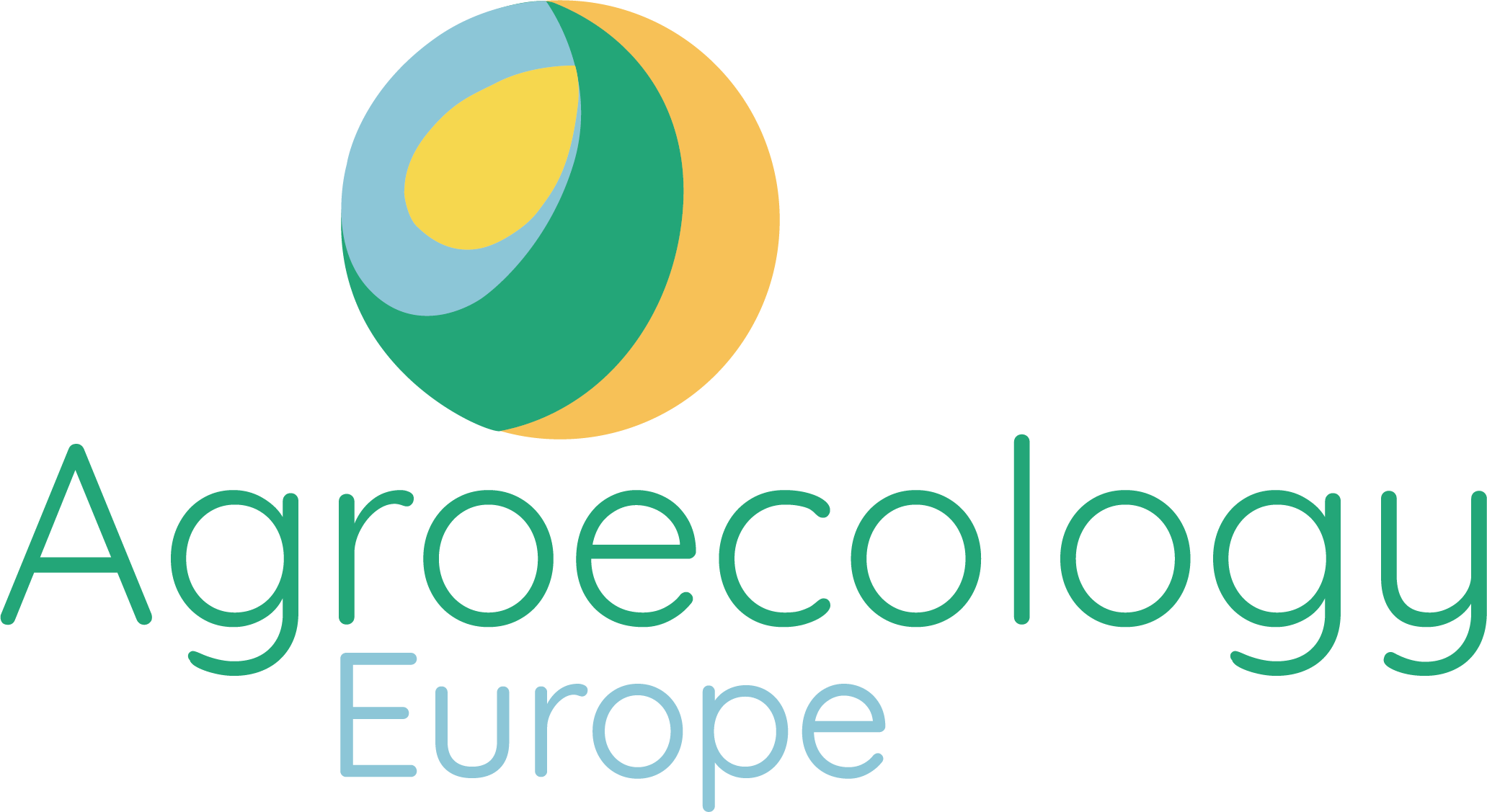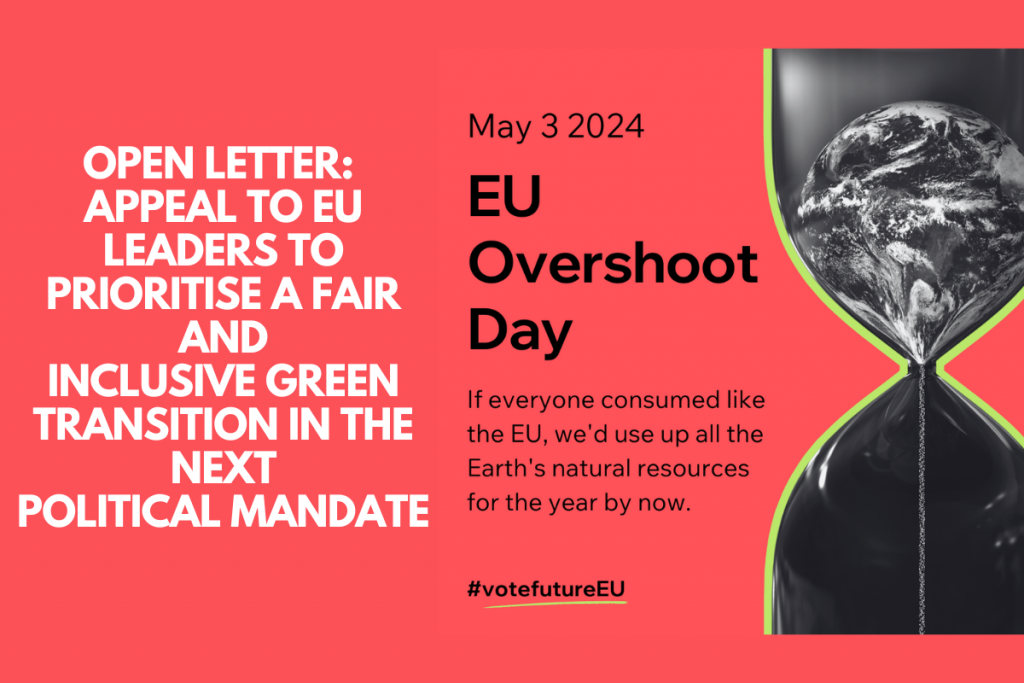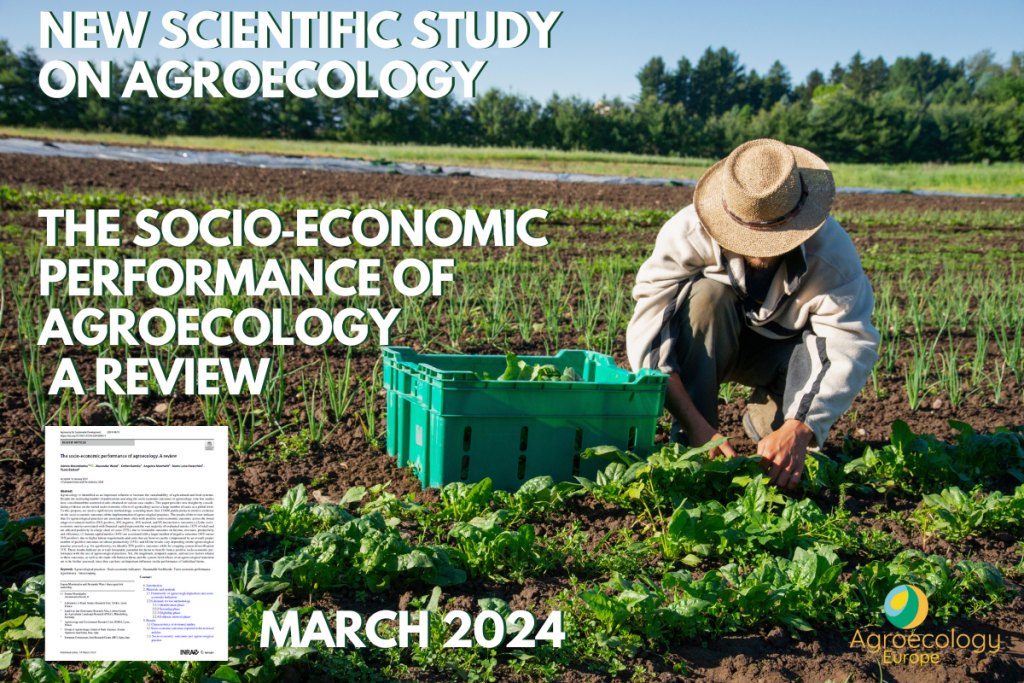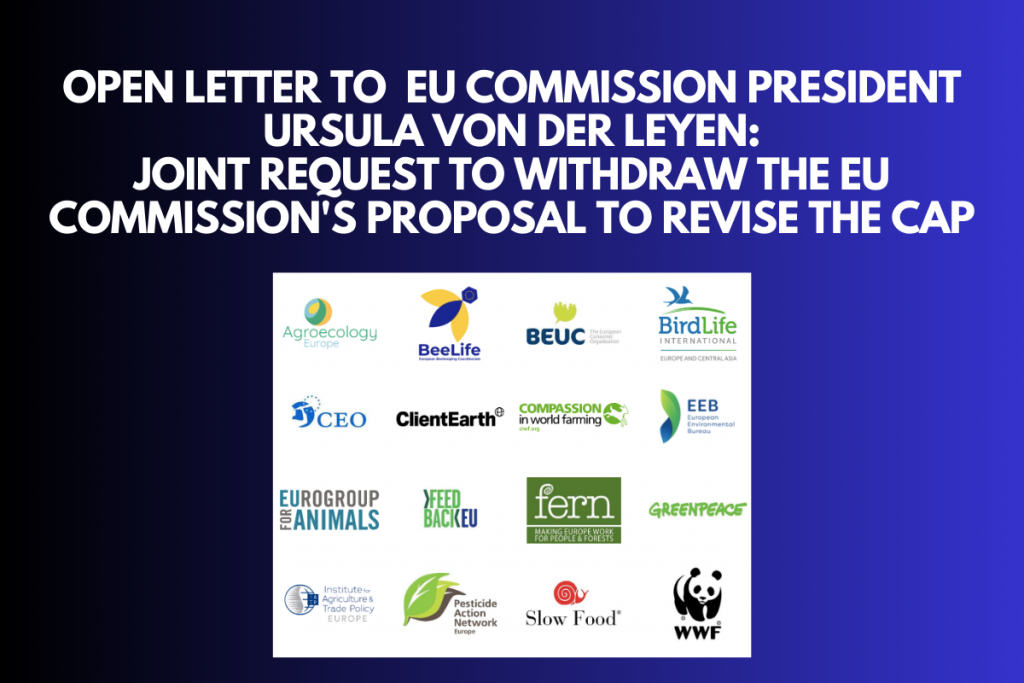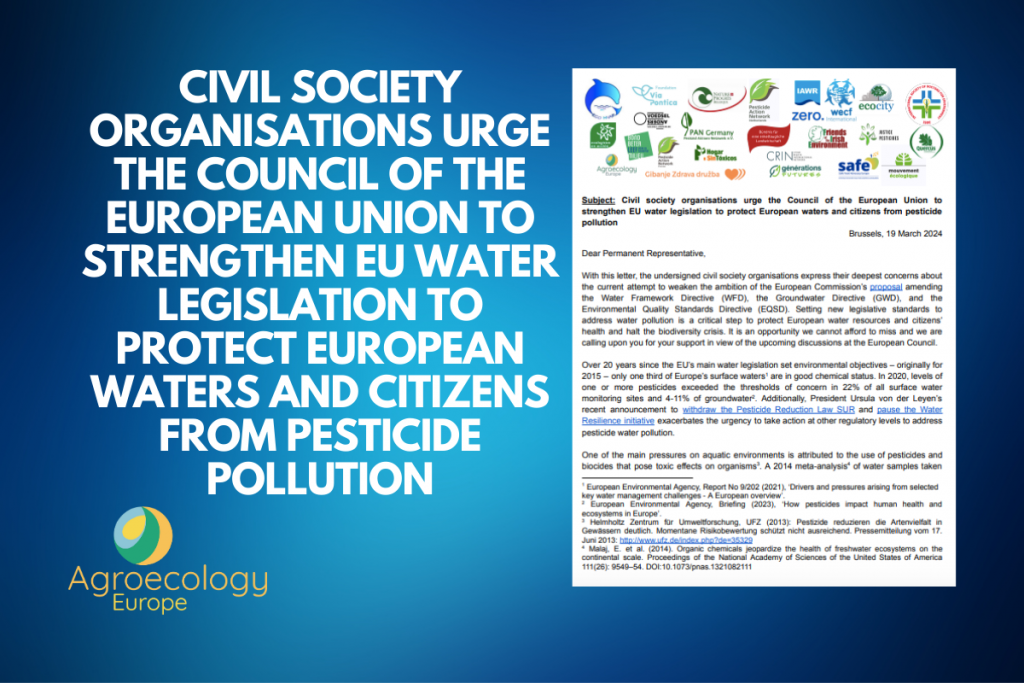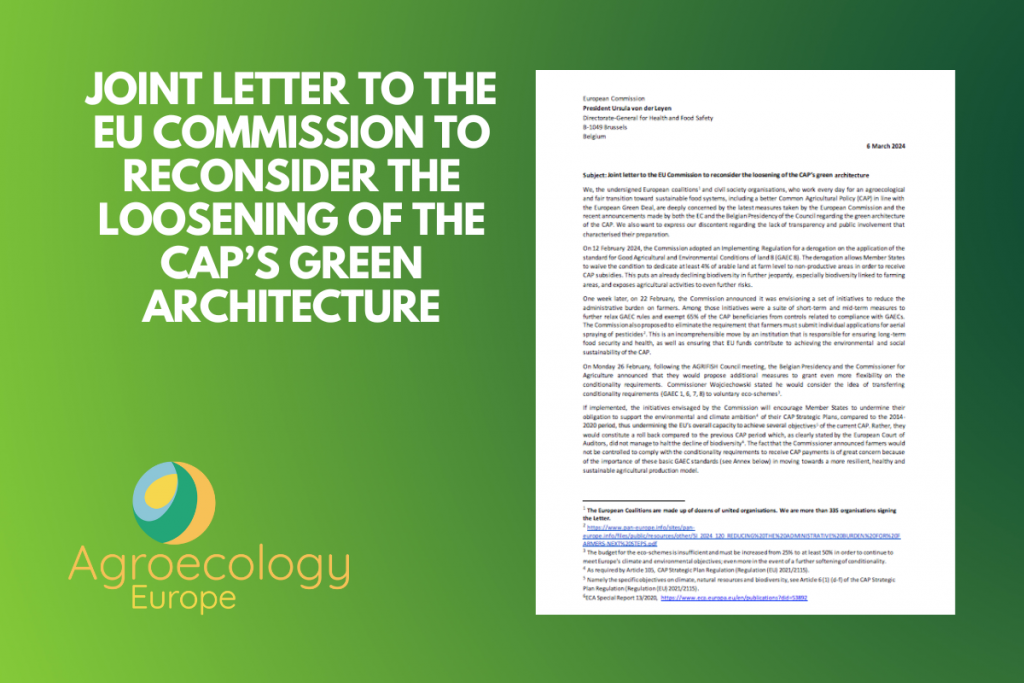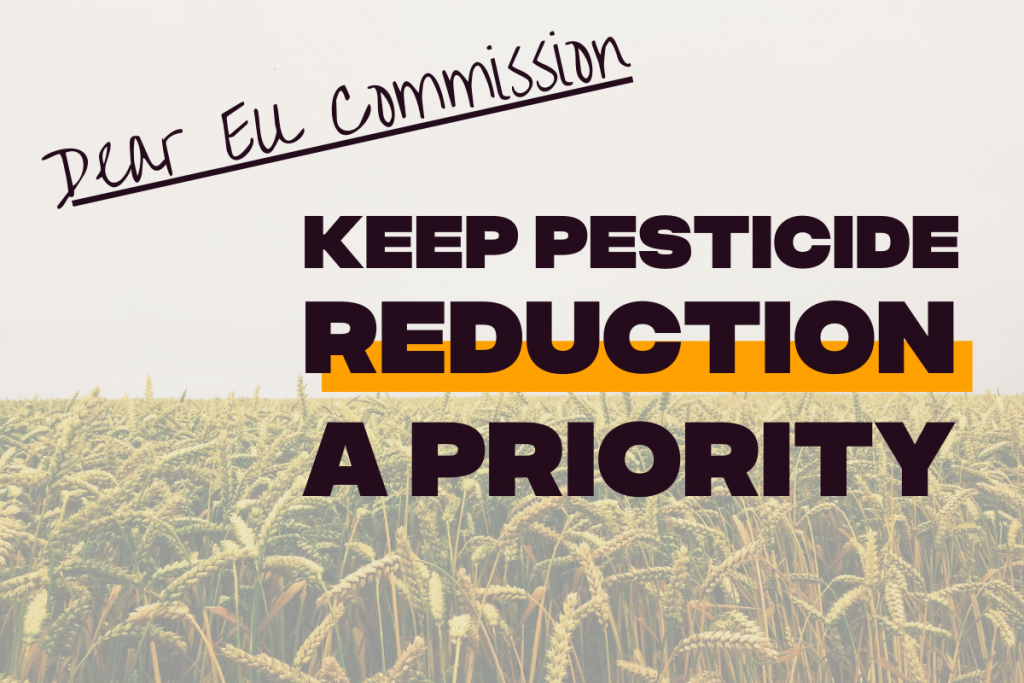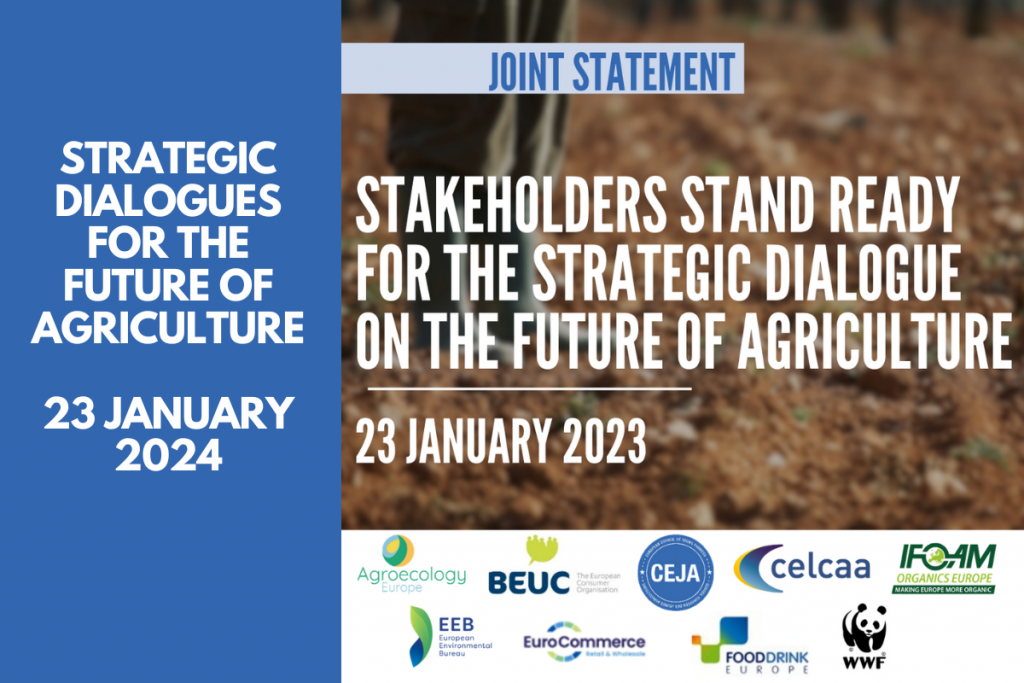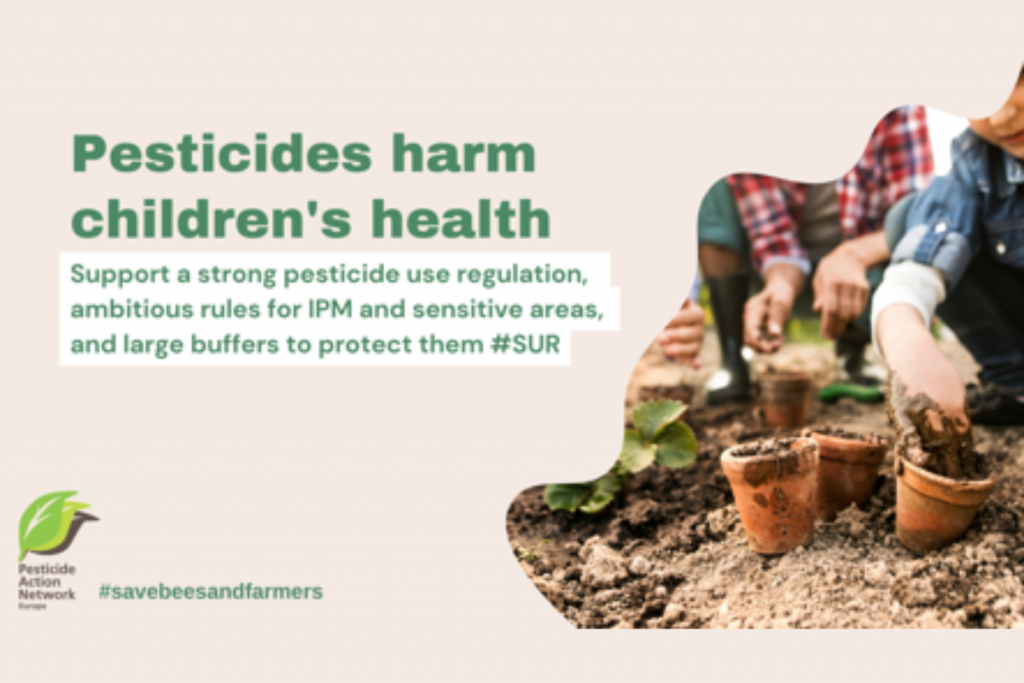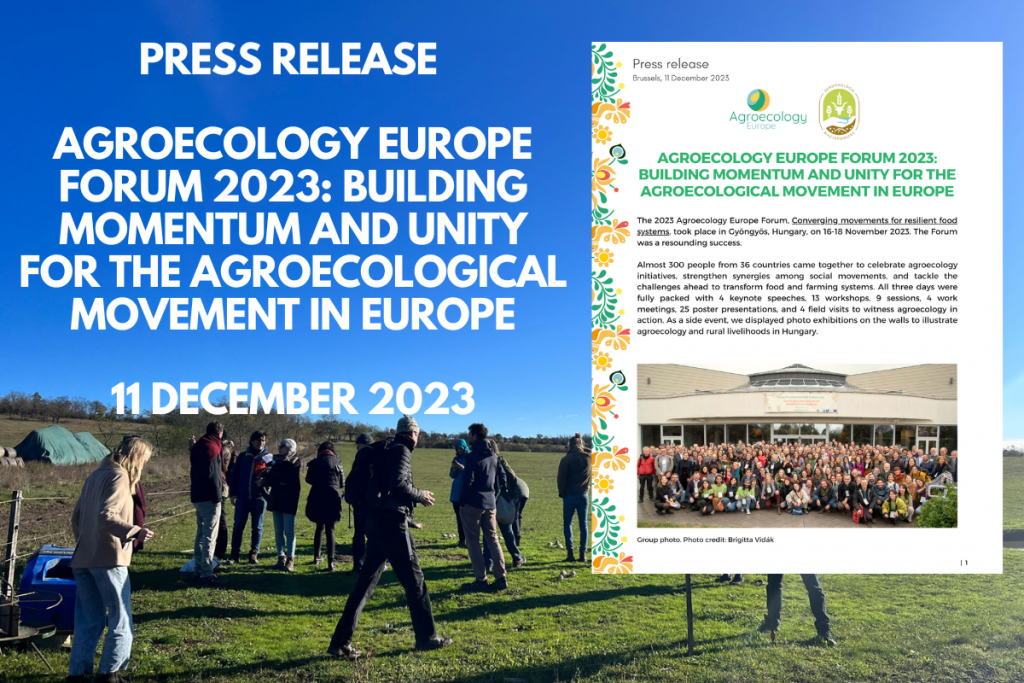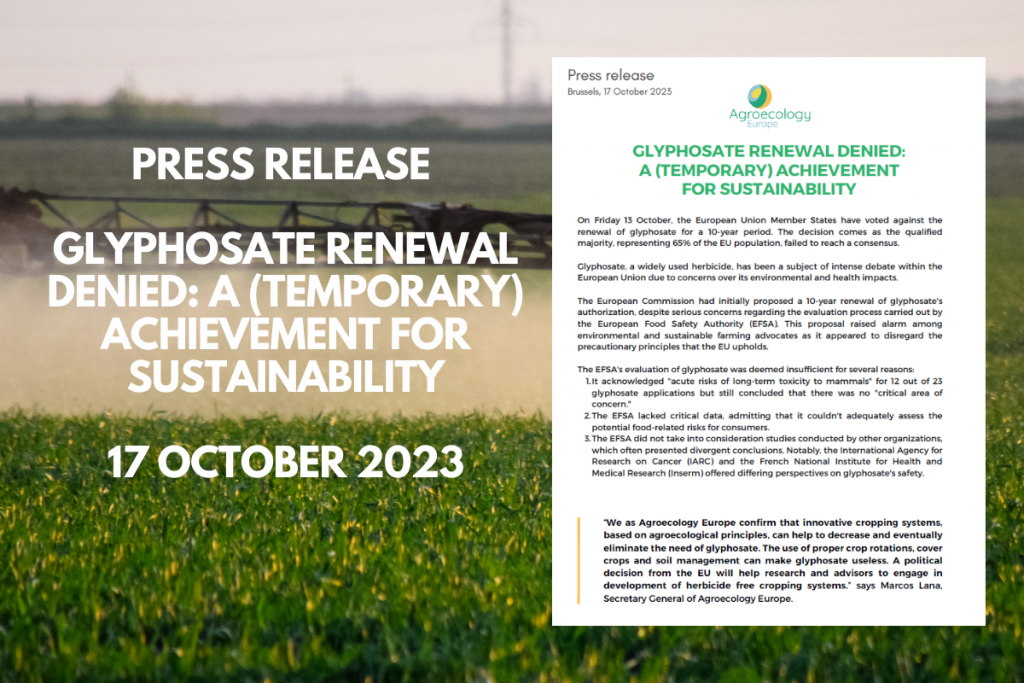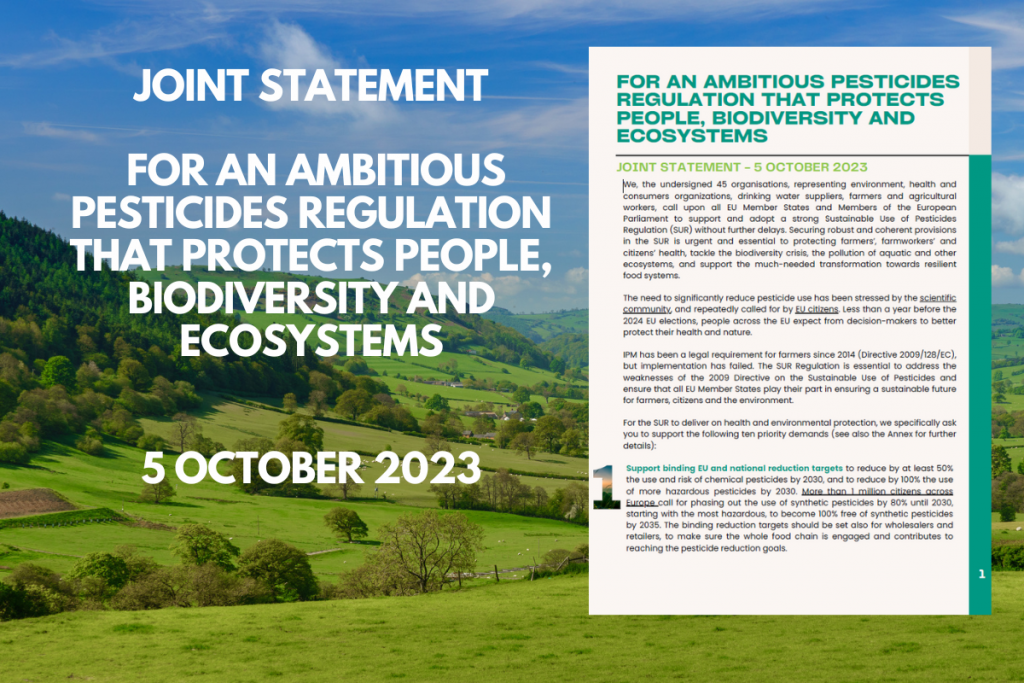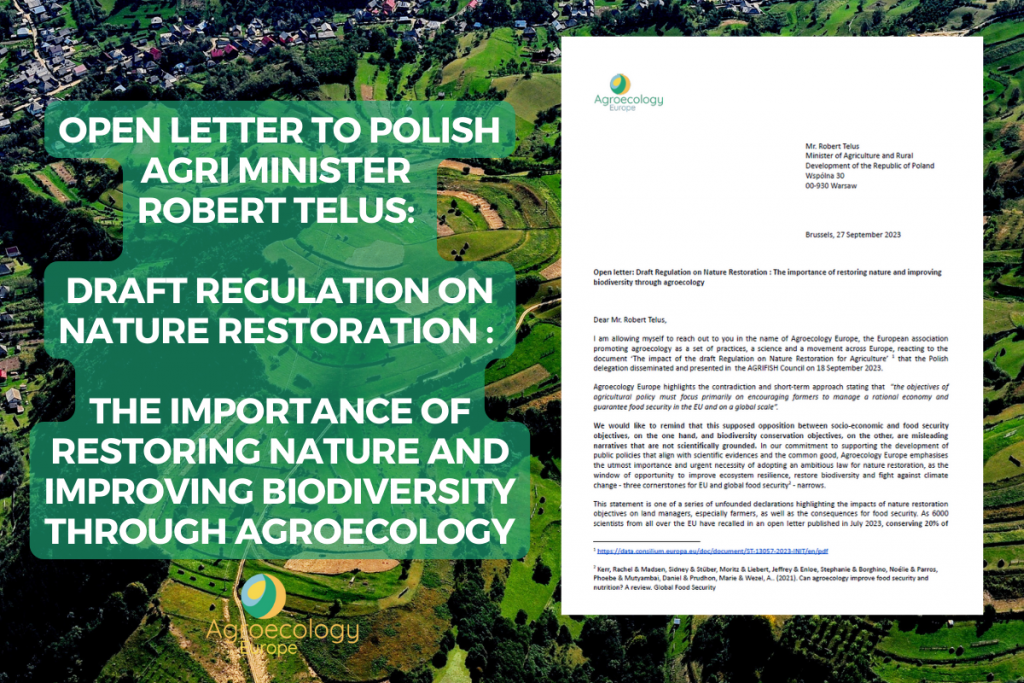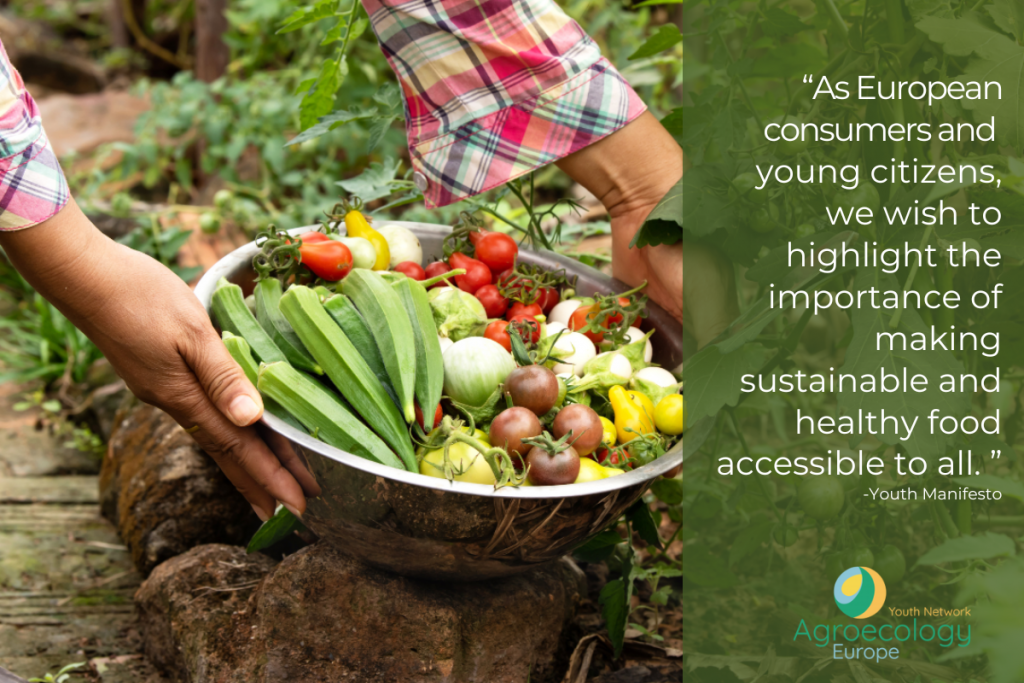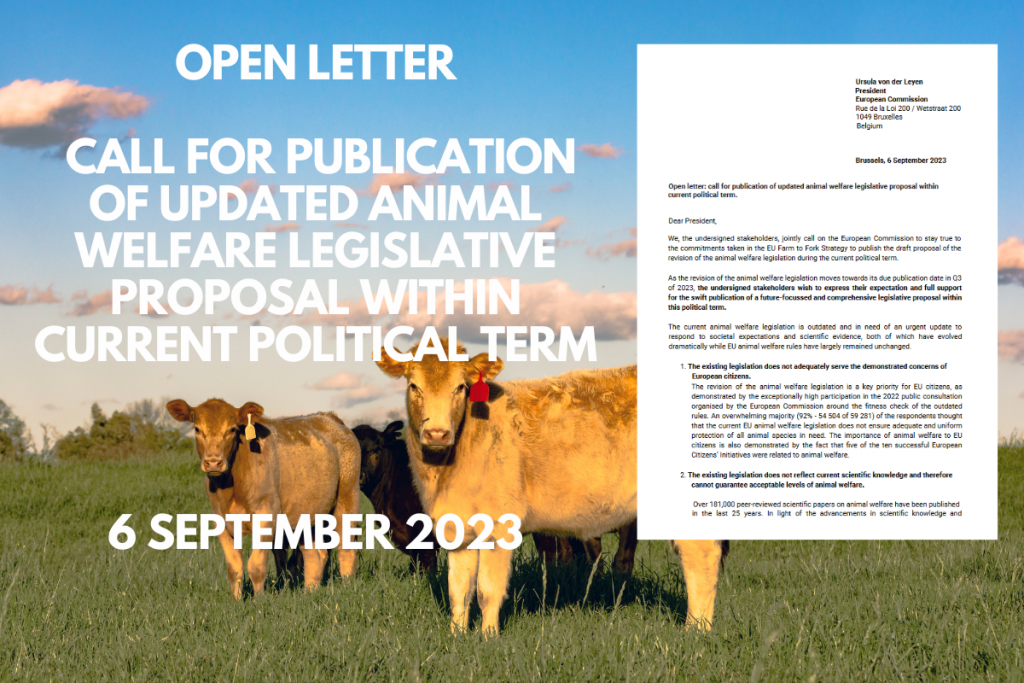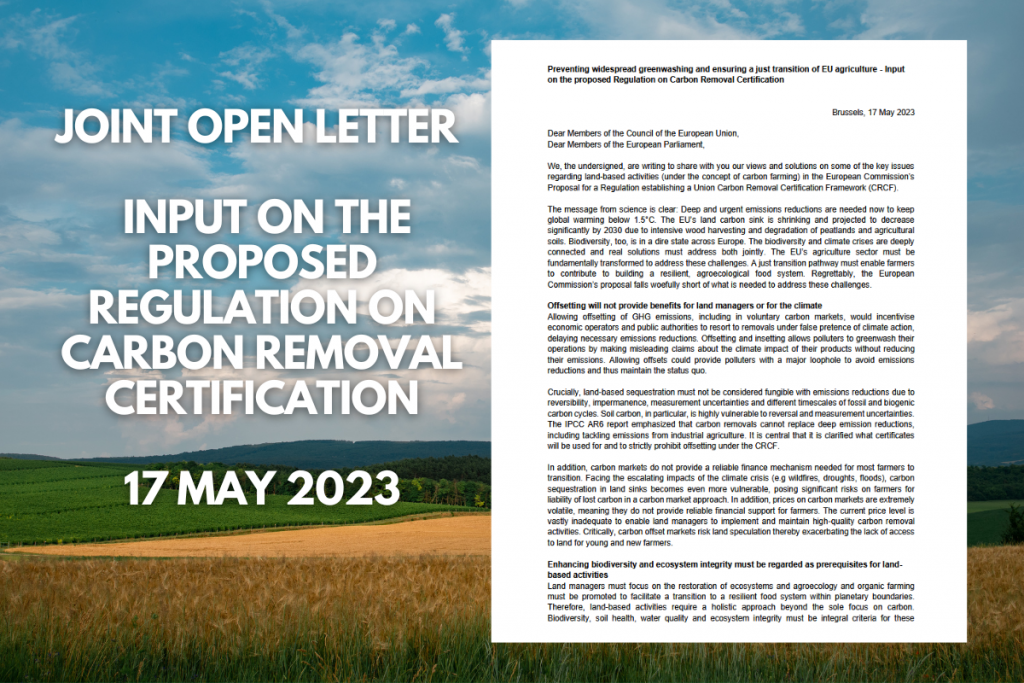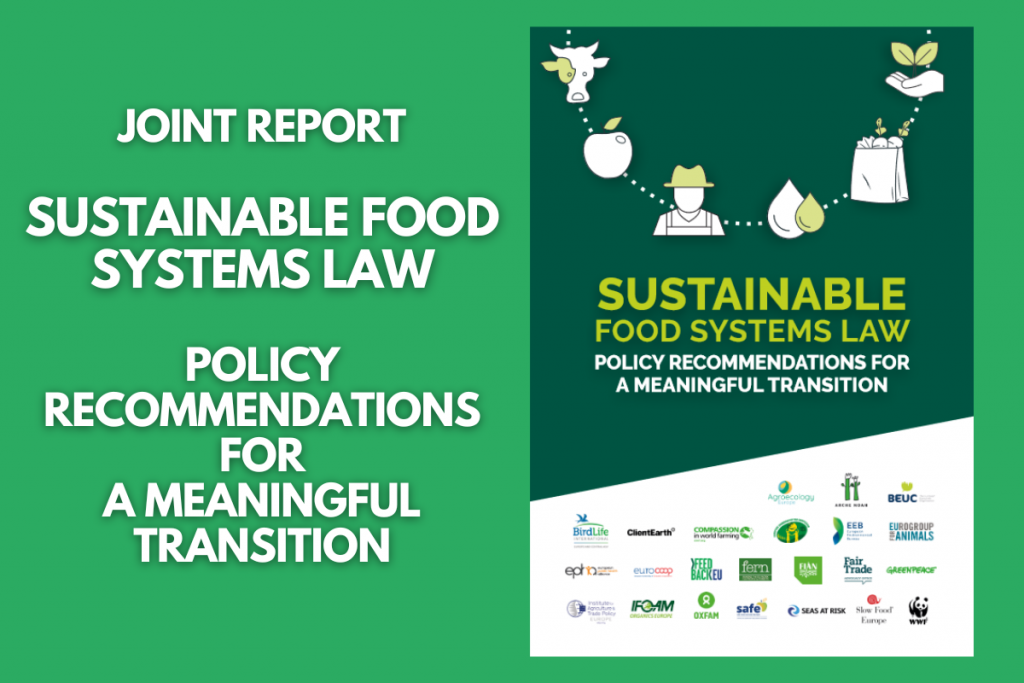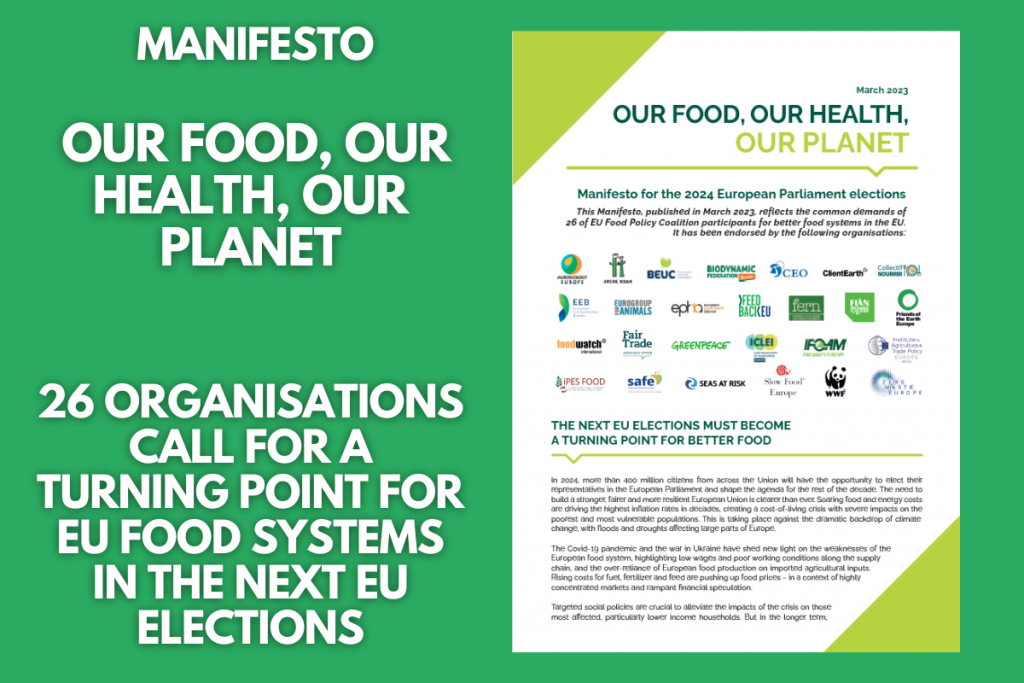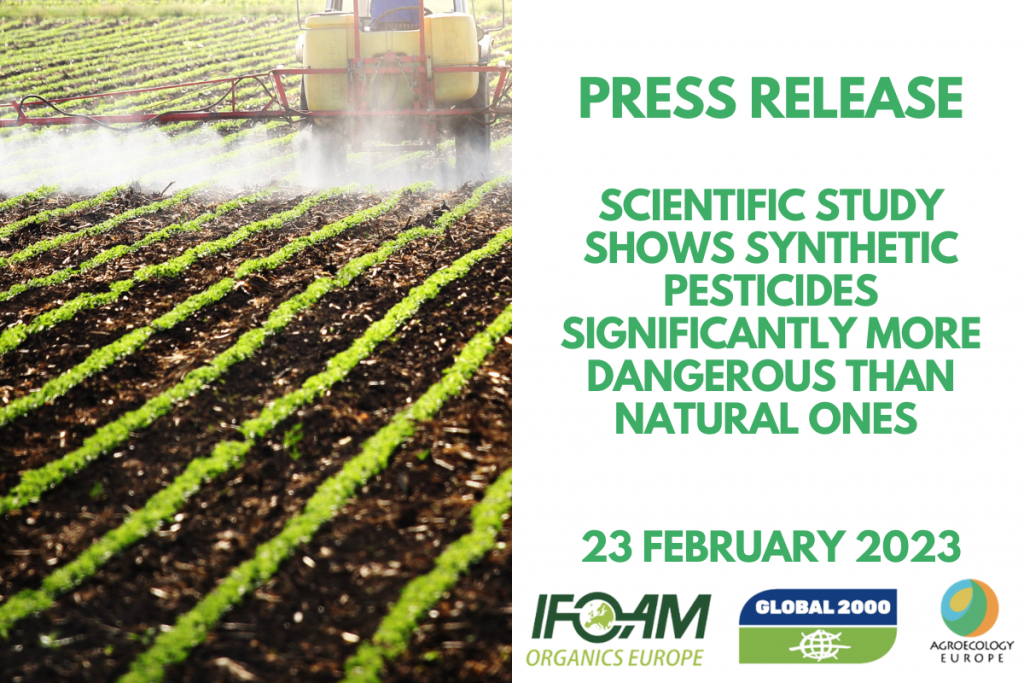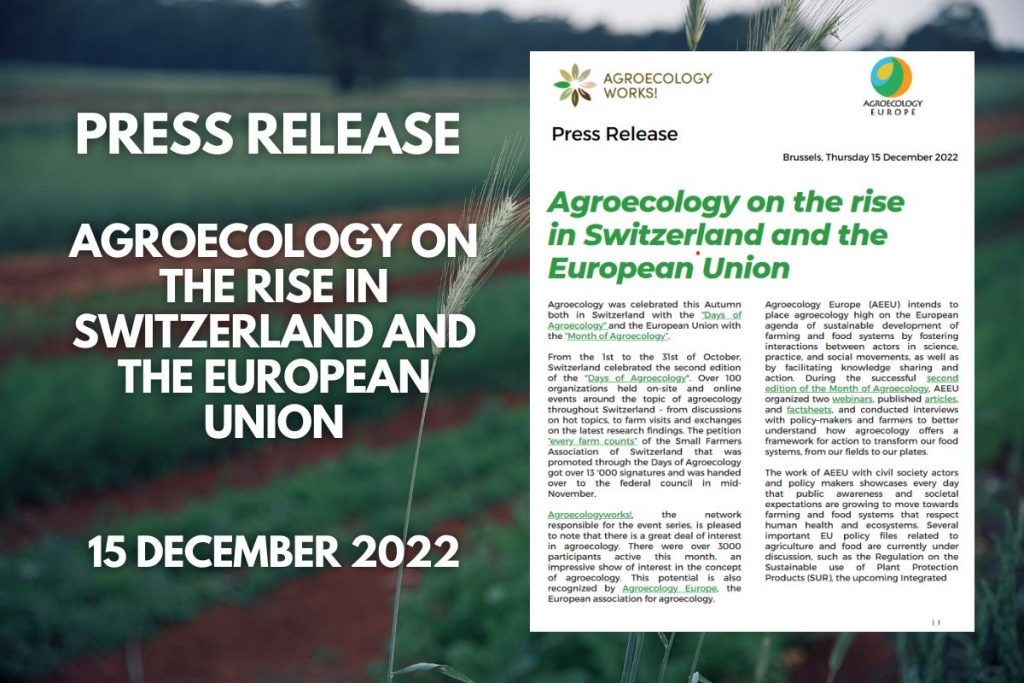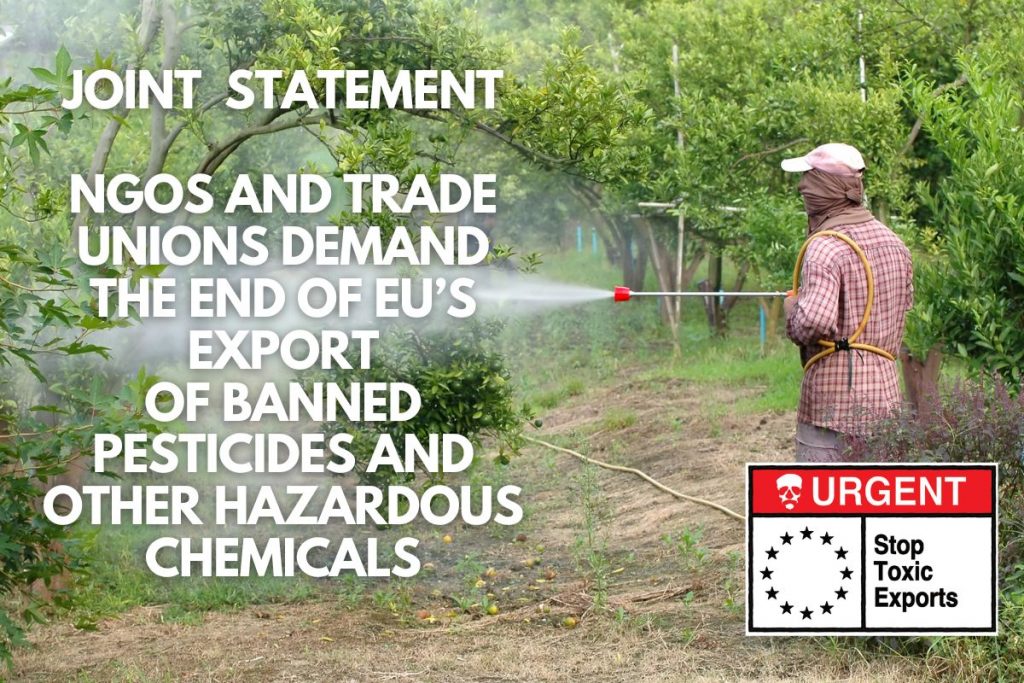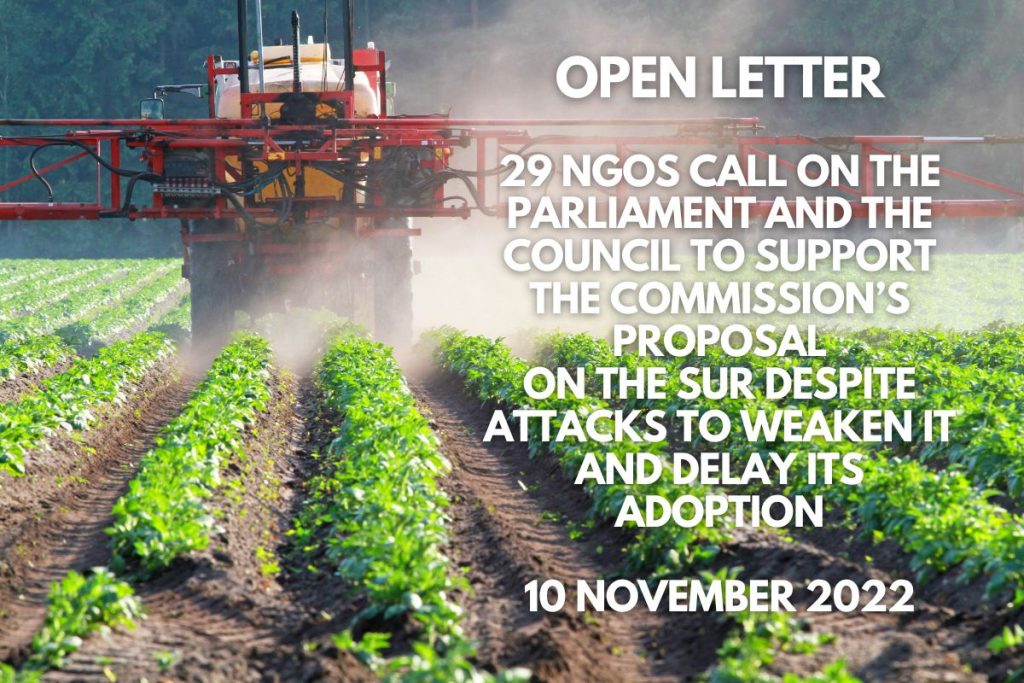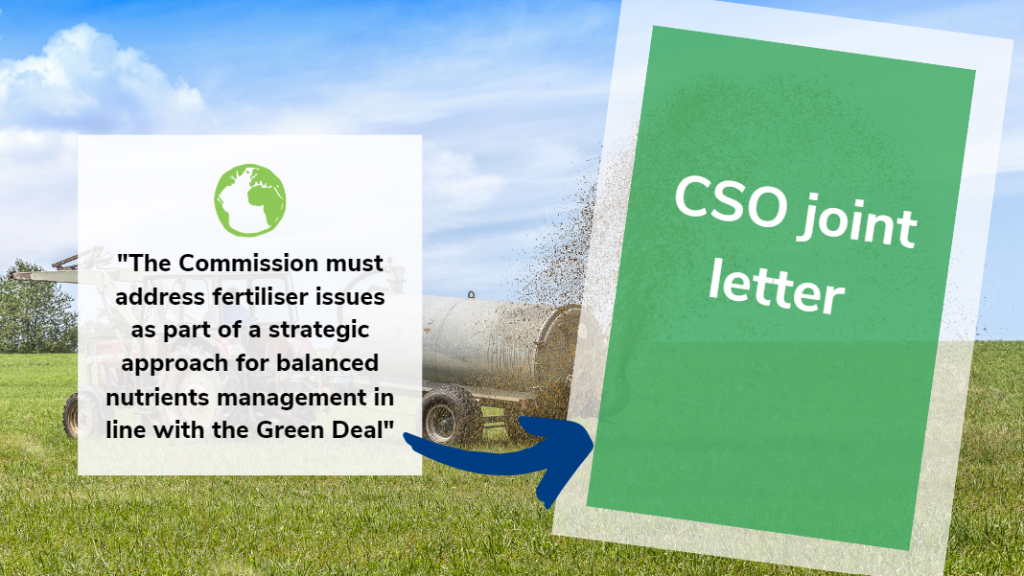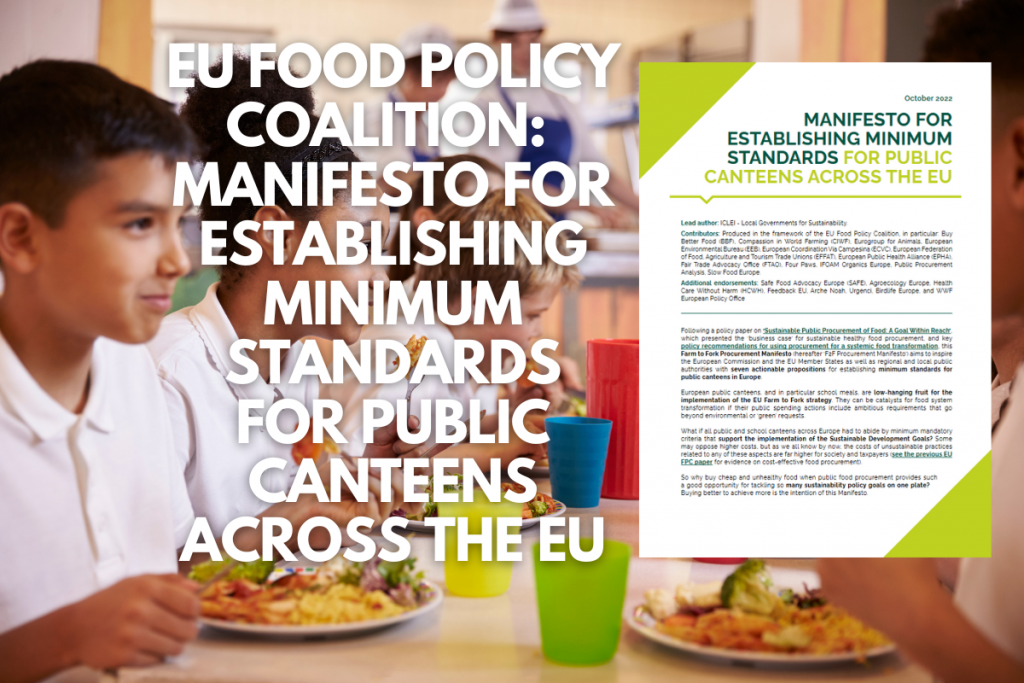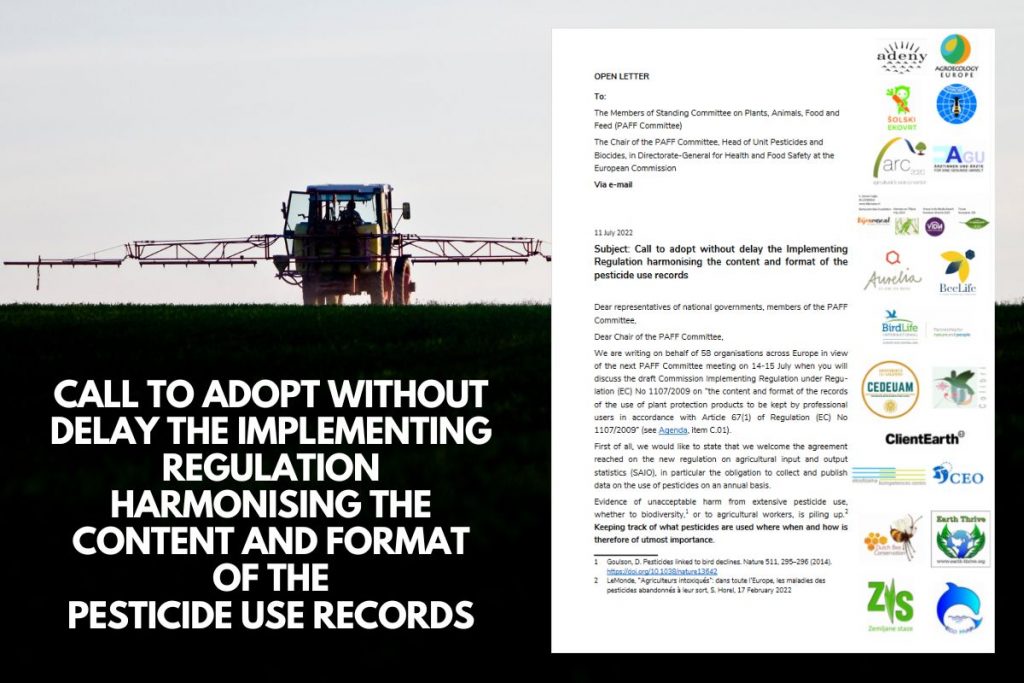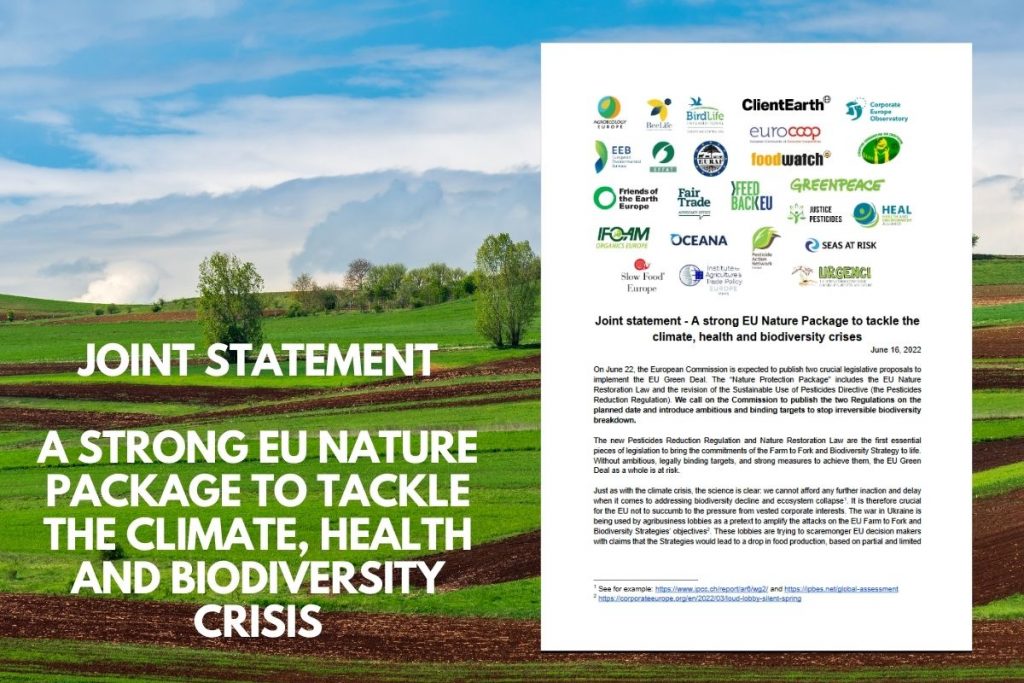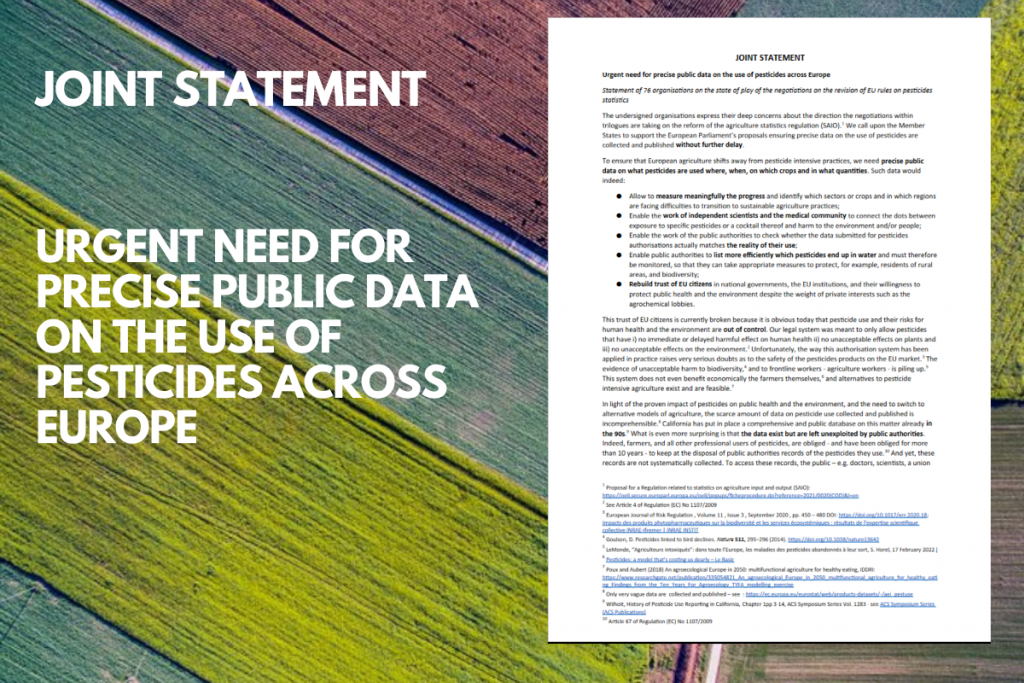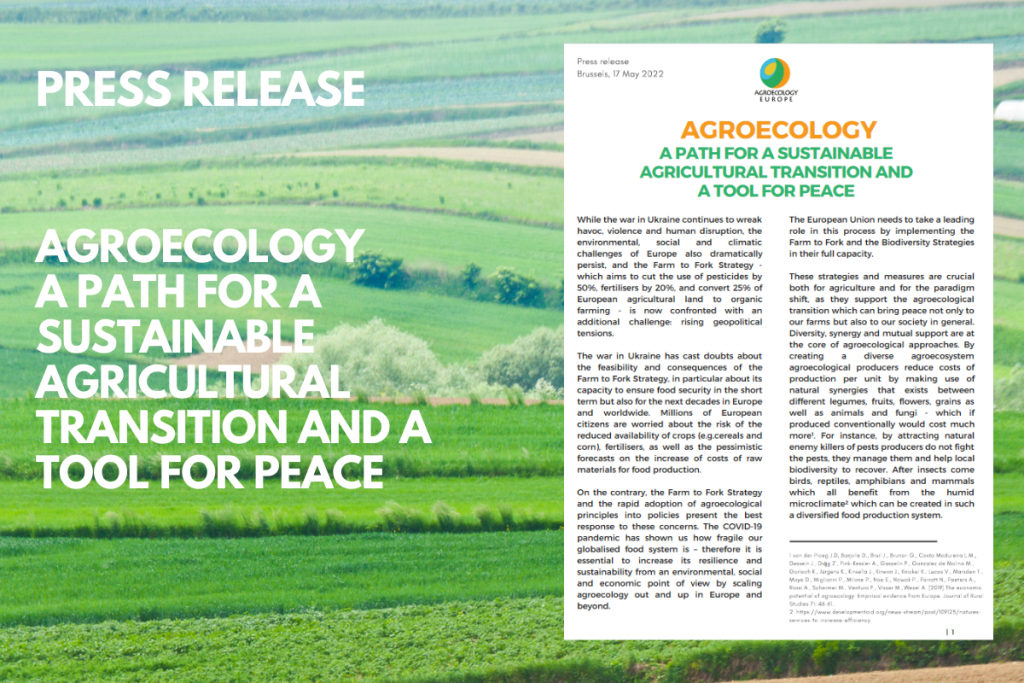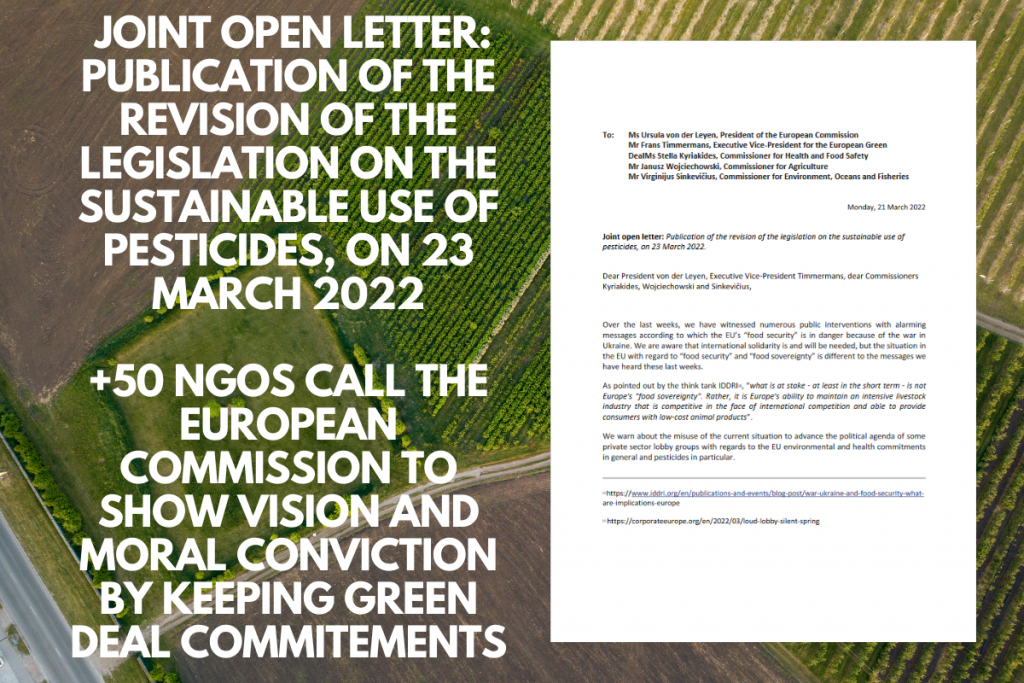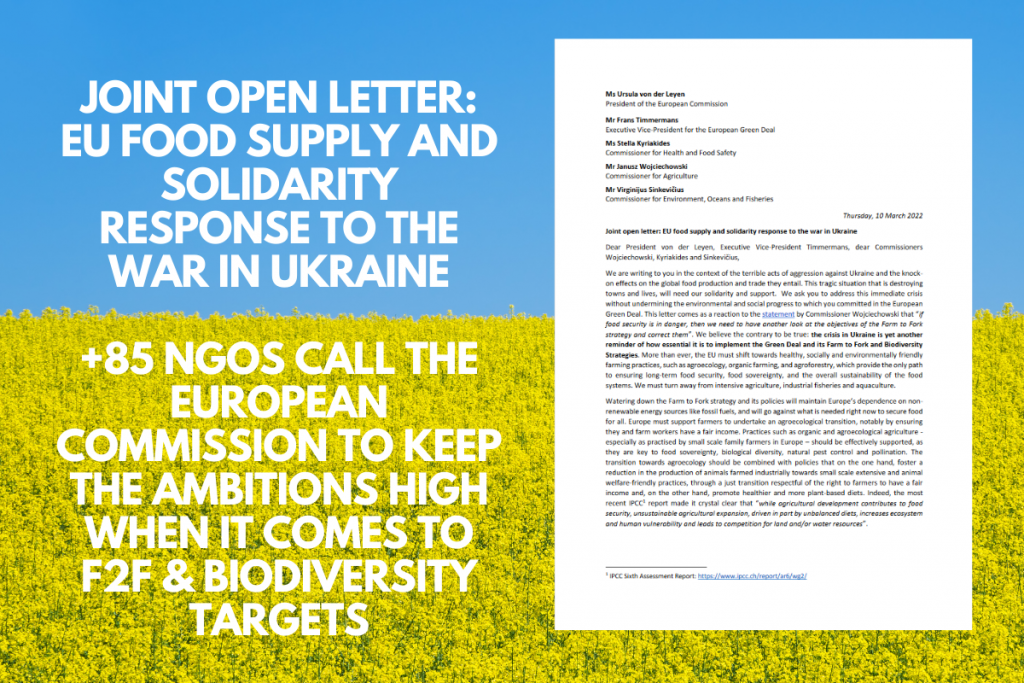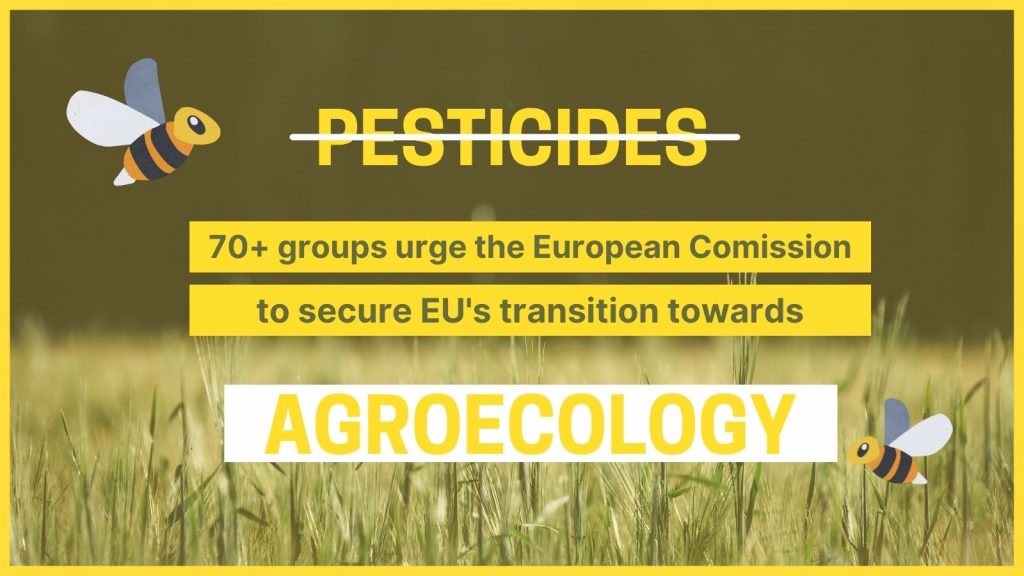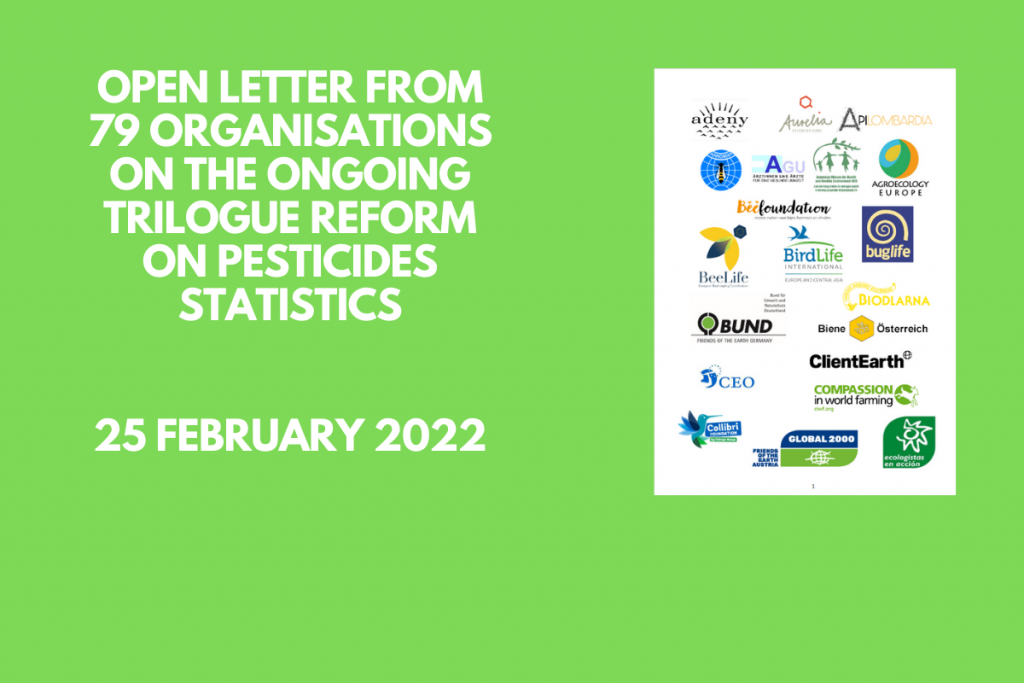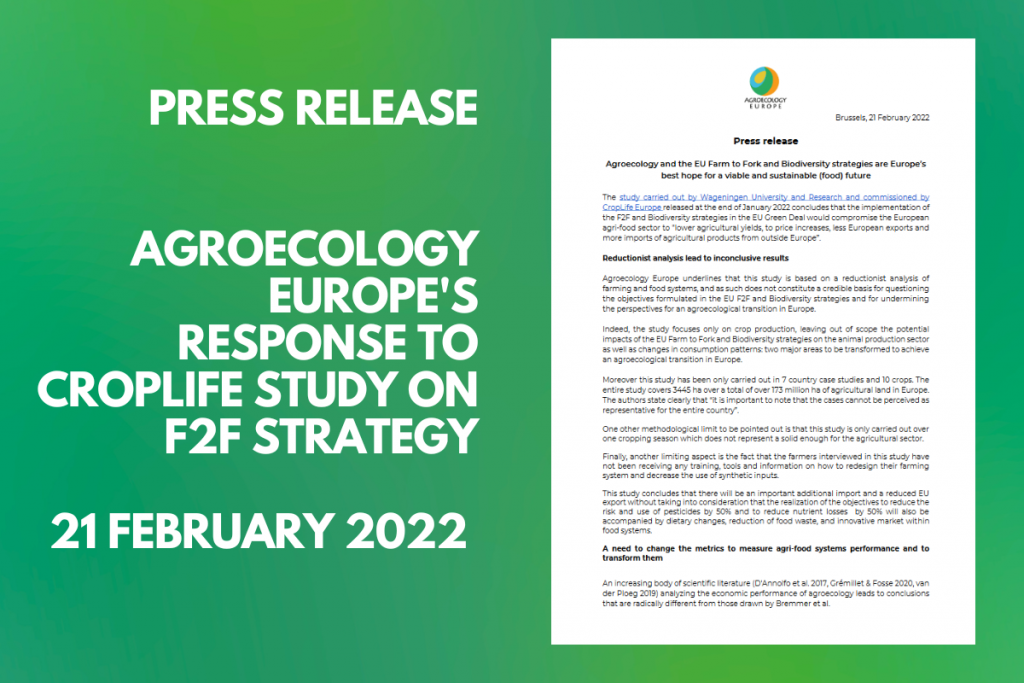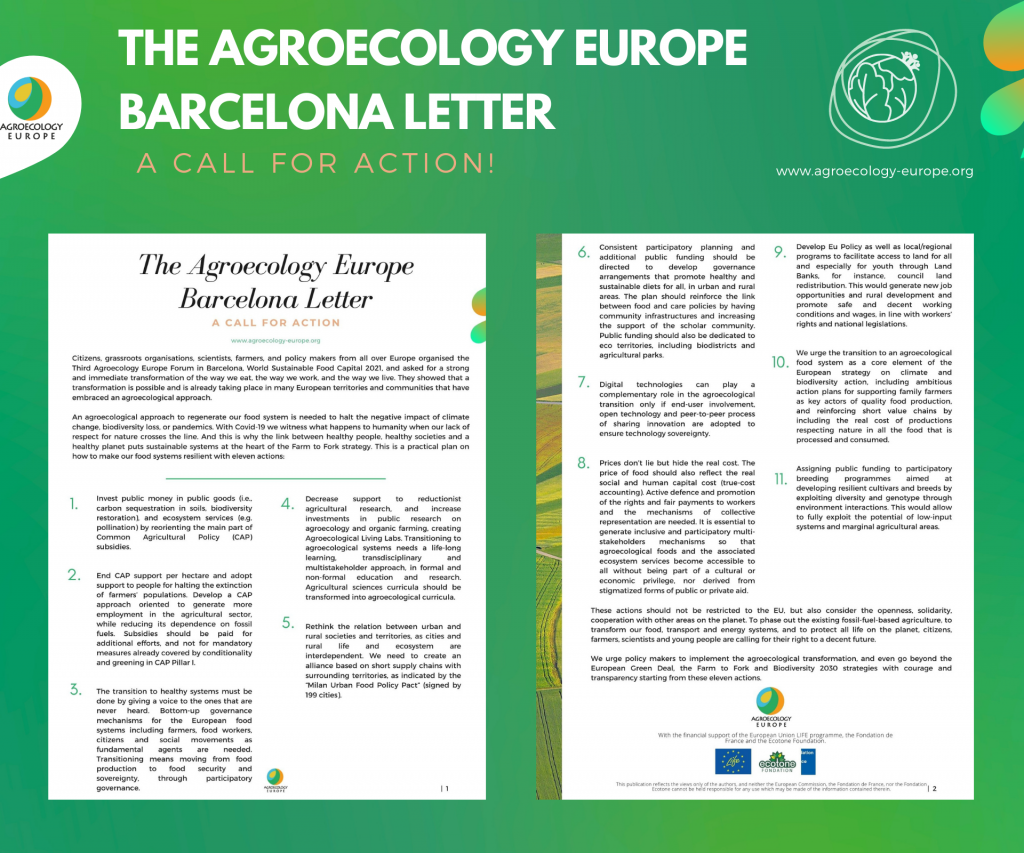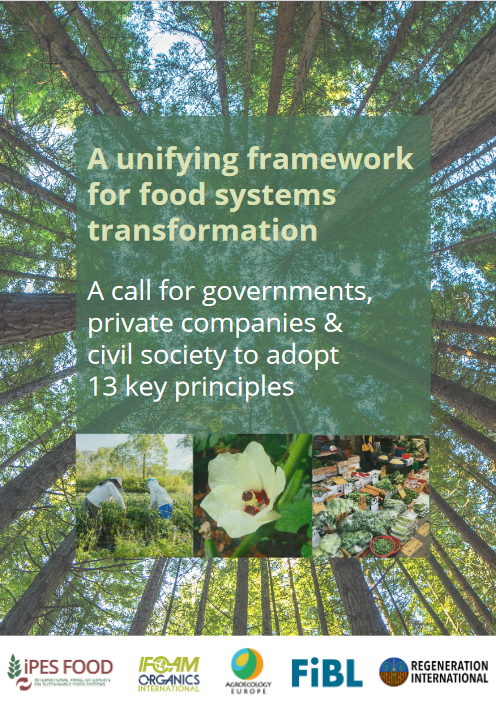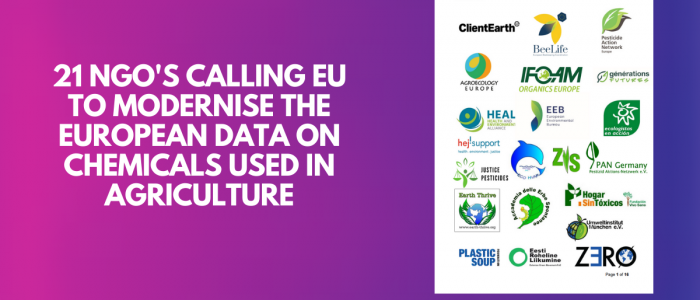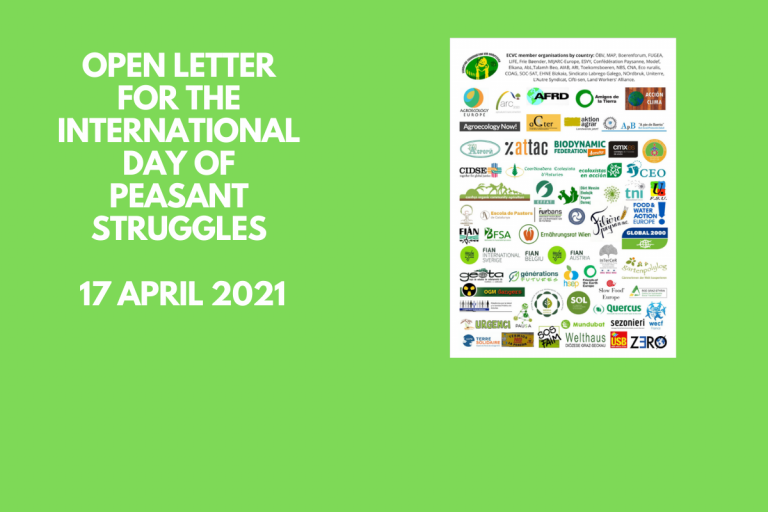CIVIL SOCIETY REACTS TO FURTHER SIMPLIFICATION MEASURES IMPACTING EU AGRICULTURE AND FOOD
As the European Commission moves to simplify EU environmental measures around agriculture and food for the second time in a year, 60 civil society organisations have issued a statement calling for measures that strengthen – rather than hinder – farmers’ resilience to the triple environmental crisis.
The European Commission is once again trying to “simplify” Common Agricultural Policy (CAP), just a year after reforms that already weakened key environmental protections.
Meanwhile, farmers are struggling with rising temperatures, poor soil health, and collapsing biodiversity – problems the current CAP has failed to fix. Instead of supporting sustainable farming, it continues to fund harmful practices and direct payments that mostly benefit the largest landowners.
If the EU is serious about supporting farmers, it must strengthen environmental and climate policies in the CAP – not weaken them.
OPEN LETTER FOR CLIMATE ACTION AND JUST TRANSITION IN AGRICULTURE
Together with over twenty civil society organisations, we call on Executive Vice-President Ribera Rodríguez and Commissioner Hoekstra to put climate action and a just transition for EU agriculture at the core of their work.
If we do not change our food systems, catastrophic climate change and biodiversity collapse will change them for us. A transition is inevitable, but making it just and sustainable requires action.
“The time for change is now”, states the consensus report of the Strategic Dialogue on the Future of EU Agriculture, acknowledging the massive challenge ahead of us and setting out first steps of a just transition for the sector. Equally, the European Economic and Social Committee recognised the importance of putting in motion a just transition “to ensure a sustainable future for EU agri-food systems.”
To set the EU’s agri-food sector on a just transition pathway, we have 5 recommendations.
Open letter on the Vision for Agriculture and Food
We are among 43 organisations representing farmers, industry, nature, health and animals, who have written to the new Commissioner for Agriculture and Food Christophe Hansen to offer our help and expertise in shaping policies to support a transition to fair, healthy, and sustainable food and farming systems.
The Vision for Agriculture and Food needs to set the direction of travel and include a concrete work plan to address these challenges. It should build on the recommendations from the Strategic Dialogue on the Future of EU Agriculture in their entirety and will require close collaboration with your colleagues across the College to implement. The Vision must uphold an integrated food systems approach addressing the entire chain from production to consumption and hold all stakeholders, including commercial actors like traders, processors, and retailers, accountable to ensure a fair and effective transition without placing the burden solely on farmers and fishers.
CSO statement: THE EU COMMISSION MUST PROVIDE GUARANTEES ON CLIMATE, NATURE AND PUBLIC HEALTH, ENSURING THE PROTECTION OF PEOPLE
On 4-12 November 2024, the new Commissioners will undergo hearings with the European Parliament. 180+ organisations push back on the deregulation and simplification agenda, calling on new Commissioners to commit to upholding the commitments and ambition of the European Green Deal.
According to the new mission letters, all Commissioners must meet arbitrary ‘burden reduction’ targets and simplify legislation, posing the risk of delayed or weakened environmental action. It is not enough for this Commission to vaguely claim it will not deregulate environmental, public health and social standards. We demand clarity from President von der Leyen and her Commission on key issues.
Joint letter to the EU Commission to Keep DG SANTE’s lead for EU pesticide regulation
Information from the press indicates that the European Commission is considering moving the competency over pesticide files and responsibilities from DG SANTE to another DG. We, the undersigned organisations working to protect citizens and biodiversity from the harmful effects of pesticides, would like to express our serious concern regarding these media reports.
In the framework of the Union’s One Health approach, removing the competence on pesticides from DG SANTE would contradict the evolution of science, showing that human, animal, plant and environmental health are intrinsically linked and interdependent.
CAP Reform Catastrophe: A Step Backward for European Agriculture and Democracy
The recent reform of the Common Agricultural Policy (CAP) is disastrous news for EU farmers, nature, health, and common good. Deleting environmental measures from agriculture policy is the wrong answer to the farmers’ protests sweeping across Europe this year.
The upcoming elections (6-9 June 2024) are an opportunity to enact change and elect strategic leaders who respect the priorities, needs, and wellbeing of European citizens and the farming community.
OPEN LETTER: APPEAL TO EU LEADERS TO PRIORITISE A FAIR AND INCLUSIVE GREEN TRANSITION IN THE NEXT POLITICAL MANDATE
3 May 2024 marks the EU’s overshoot day. That means that if global populations mirrored the consumption patterns of the EU, humanity would exhaust the planet’s natural resources available for the year by this day. On this occasion, 317 civil society organisations are in an open letter calling on member states and the EU to make a political commitment to work towards a climate-neutral, zero-pollution, and nature-positive economy.
Press release: New study reveals the positive socio-economic performance of agroecology
The benefits of agroecology for the environment and food security and nutrition are widely recognised. But what evidence do we have on the socioeconomic performance of agroecology? And is this socio-economic performance expected to support or to hinder the agroecological transition? A novel study consolidates, for the first time, evidence on the varied socioeconomic outcomes of the implementation of agroecological practices across a large number of cases at a global level.
Joint request to withdraw the EU Commission's proposal to revise the CAP
Letter to EU Commission President Ursula von der Leyen urging her to withdraw the CAP legislative proposal and to abide by Union law and the Better Regulations Guidelines. This will help to guarantee that any future initiatives on EU agriculture respect the well-established safeguards for a high level of transparency, public participation and evidence-based decision-making. It will also help to ensure that all decisions likely to affect farmers, the environment and human health are taken in full consideration of the interests of society as a whole.
With this legislative proposal, the European Commission has given in to the fake narrative that opposes the environment to agriculture, when evidence shows that they depend on each other. The measures proposed will only undermine the very jobs that the CAP is meant to support in the long-term.
Open letter: Civil society organisations urge the Council of the European Union to strengthen EU water legislation to protect European waters and citizens from pesticide pollution
With this letter, the undersigned civil society organisations express their deepest concerns about the current attempt to weaken the ambition of the European Commission’s proposal amending the Water Framework Directive (WFD), the Groundwater Directive (GWD), and the Environmental Quality Standards Directive (EQSD). Setting new legislative standards to address water pollution is a critical step to protect European water resources and citizens’ health and halt the biodiversity crisis. It is an opportunity we cannot afford to miss and we are calling upon you for your support in view of the upcoming discussions at the European Council.
Joint letter to the EU Commission to reconsider the loosening of the CAP’s green architecture
We, the undersigned European coalitions and civil society organisations, who work every day for an agroecological and fair transition toward sustainable food systems, including a better Common Agricultural Policy (CAP) in line with the European Green Deal, are deeply concerned by the latest measures taken by the European Commission and the recent announcements made by both the EC and the Belgian Presidency of the Council regarding the green architecture of the CAP.
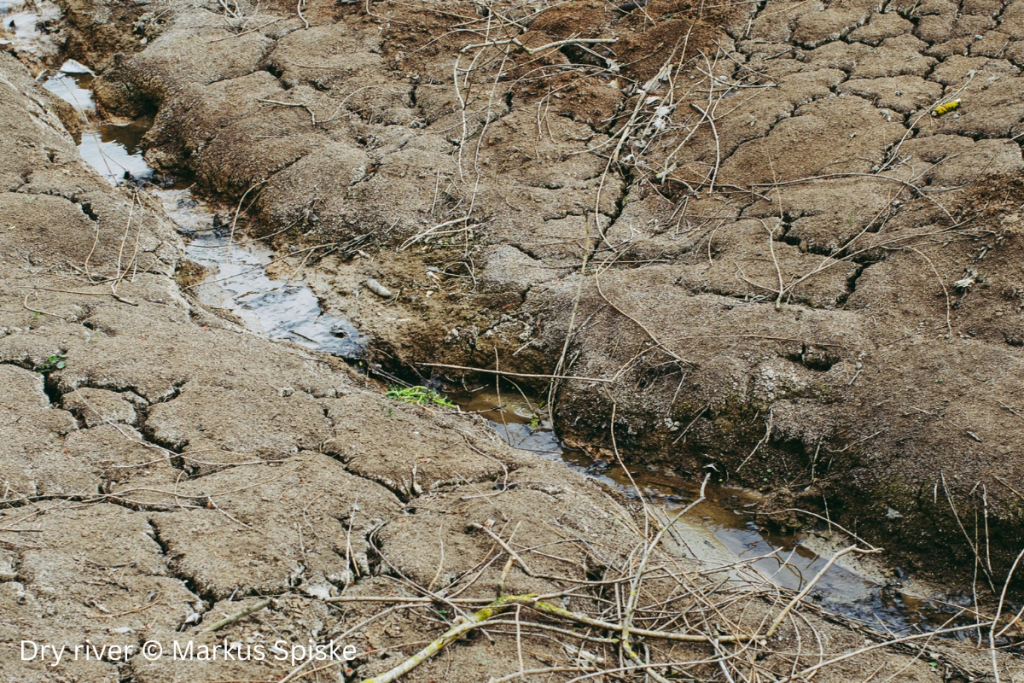
Open letter: Nature-based water resilience cannot wait
In the face of more intense and frequent extreme weather events related to climate change, the EU should accelerate its action to address recurrent water scarcity and protect society against the effects of droughts, floods, wildfires and sea level rise. Nearly 30 organisations, including NGOs, city networks, sustainable farmers, trade unions and professional associations, are calling on European Commission President, Ursula von der Leyen, to put the nature-based EU water resilience initiative back on the agenda before the 2024 EU elections.
Joint Statement: The EU must make pesticide reduction a reality
The undersigned 125 organisations condemn the failure of the European Parliament, Council, and Commission to deliver on a crucial element of the Green Deal: pesticide reduction. On 6 February 2024 the European Commission announced it would withdraw its proposal for the Sustainable Use Regulation (SUR), delaying by years urgently needed action to reduce the use and risks of synthetic pesticides in Europe. By failing to adopt an ambitious pesticide reduction law, the EU institutions betray more than a million citizens across Europe who expressed the pressing need to reduce pesticides, and
to support farmers in doing so.
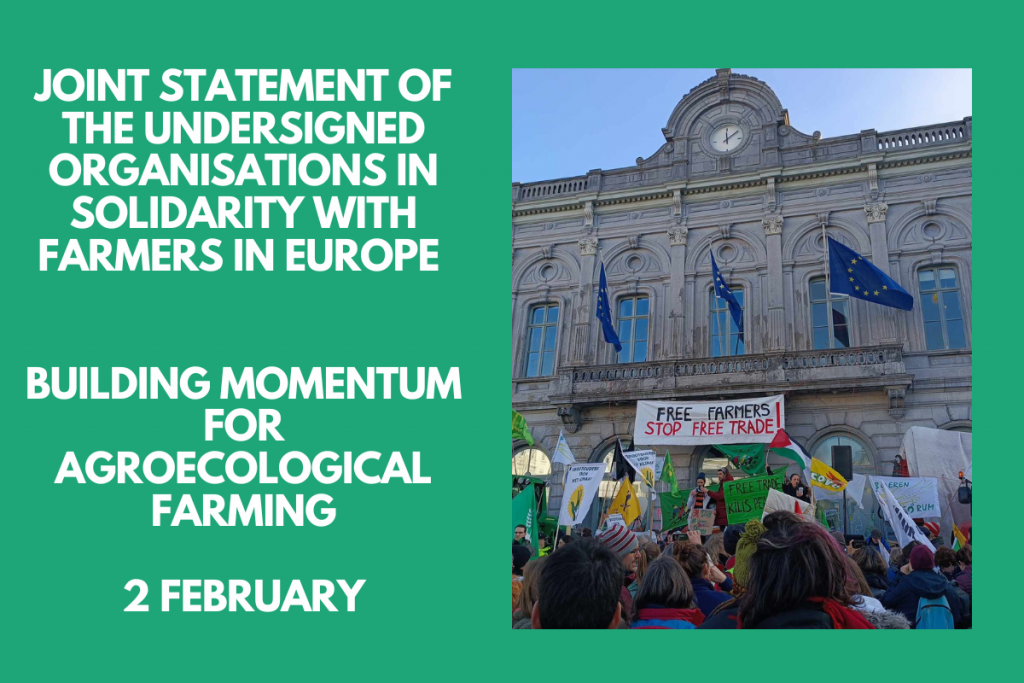
Joint statement of the undersigned organisations in solidarity with farmers in Europe— Building momentum for agroecological farming
On 1 February 2024, civil society organisations gathered in Brussels in front of the European Parliament in solidarity with peasants. In response to a call from the European Coordination Via Campesina (ECVC) and the Belgian farmers’ union Fédération Unie de Groupements d’Eleveurs et d’Agriculteurs (FUGEA), organisations expressed their support for food sovereignty, organic
agriculture, agroecology, peasant rights, and fair food prices.
Joint statement: Stakeholders of all horizons stand ready for the strategic dialogue
on the future of agriculture
In September 2023, European Commission President Ursula von der Leyen announced the start of a strategic dialogue on the future of agriculture to establish perspectives for a future-proof sector and address growing polarisation. As farmers, agrifood value chain and civil society stakeholders, we fully support the objective of “more dialogue, less polarisation” and want to avoid politicising the process. Ahead of the official launch on 25th January, we call on institutional actors and stakeholders to guarantee a safe, inclusive and constructive environment for the dialogue to facilitate the emergence of a consensus on the transformation necessary for our agriculture and food systems.
Read the full statement here
Open Letter: Maintaining the European Commission proposal for a Regulation on the Sustainable Use of Plant Protection Products (SUR)
Agroecology Europe joins 80 NGOs representing farmers, consumers, environmental, trade. and human rights organisations to express our collective support for an ambitious Sustainable Use of Plant Protection Products (SUR) proposal. We urge the European Commission to commit to evidence-based policymaking and dedicate its work to safeguard the well-being of present and future generations. As representatives of diverse stakeholders who share a common concern for the sustainability of our food systems, we stand ready to collaborate and support an ambitious SUR proposal.
Agroecology Europe Forum 2023: building momentum and unity for the agroecological movement in Europe
The 2023 Agroecology Europe Forum, Converging movements for resilient food systems, took place in Gyöngyös, Hungary, on 16-18 November 2023. The Forum was a resounding success.
Almost 300 people from 36 countries came together to celebrate agroecology initiatives, strengthen synergies among social movements, and tackle the challenges ahead to transform food and farming systems. All three days were fully packed with 4 keynote speeches, 13 workshops, 9 sessions, 4 work meetings, 25 poster presentations, and 4 field visits to witness agroecology in action. As a side event, we displayed photo exhibitions on the walls to illustrate agroecology and rural livelihoods in Hungary.
Press Release: Glyphosate Renewal Denied: A (temporary) achievement for sustainability
On Friday 13 October, the European Union Member States have voted against the renewal of glyphosate for a 10-year period. The decision comes as the qualified majority, representing 65% of the EU population, failed to reach a consensus.”We as Agroecology Europe confirm that innovative cropping systems, based on agroecological principles, can help to decrease and eventually eliminate the need of glyphosate. The use of proper crop rotations, cover crops and soil management can make glyphosate useless. A political decision from the EU will help research and advisors to engage in development of herbicide free cropping systems.” says Marcos Lana, Secretary General of Agroecology Europe.
Joint statement signed by 45 organisations for an ambitious pesticides regulation
the undersigned 45 organisations, representing environment, health and consumers organizations, drinking water suppliers, farmers and agricultural workers, call upon all EU Member States and Members of the European Parliament to support and adopt a strong Sustainable Use of Pesticides Regulation (SUR) without further delays. Securing robust and coherent provisions in the SUR is urgent and essential to protecting farmers’, farmworkers’ and citizens’ health, tackle the biodiversity crisis, the pollution of aquatic and other ecosystems, and support the much-needed transformation towards resilient food systems.
OPEN LETTER TO POLISH AGRI MINISTER ROBERT TELUS: THE IMPORTANCE OF RESTORING NATURE AND IMPROVING BIODIVERSITY THROUGH AGROECOLOGY
Agroecology Europe is publishing this open-letter in the attention of Mr. Robert Telus, the Minister of Agriculture and Rural Development of the Republic of Poland, reacting to the document ‘The impact of the draft Regulation on Nature Restoration for Agriculture’ that the Polish delegation disseminated and presented in the AGRIFISH Council on 18 September 2023.
Youth Manifesto “Affordable sustainable food at the heart of our Future” : The importance of making sustainable food accessible to Youth
On the 11 September 2023, the Agroecology Europe Youth Network together with 12 European youth organisations urge the EU to make sustainable and healthy food the most affordable option in this Manifesto.
“We are united in the vision of a secure and sustainable future which is not possible without radically changing our food system. This is why we ask the European Commission to present an ambitious proposal for a strong SFS Law
by September and the Parliament and the EU Member States to support the process for the transformation of our food systems” concludes the Manifesto.
Open letter: call for publication of updated animal welfare legislative proposal within
current political term
Animal health and welfare is one of the key agroecology principles defined by the HLPE. That is why on the 6th of September 2023, Agroecology Europe, together with the undersigned stakeholders, jointly call on the European Commission to stay true to the commitments taken in the EU Farm to Fork Strategy to publish the draft proposal of the revision of the animal welfare legislation during the current political term. The co-signatories wish to express their expectation and full support for the swift publication of a future-focussed and comprehensive legislative proposal within this political term.
Joint open letter – Input on the proposed Regulation on Carbon Removal Certification
On 30 November 2022, the European Commission proposed a draft Regulation for a EU Carbon Removal Certification Framework (CRCF), which among others includes land-based activities under the concept of carbon farming. The proposal is extremely weak, leaves the door wide open for offsetting and greenwashing, risking significant mitigation deterrence and might even hinder an agroecological transition.
On 17 May, 27 EU NGOs members of the EU Food Policy Coalition send a joint letter to Members of the European Parliament and the Council to emphasize key concerns and priorities for land-based activities in the CRCF.
joint report: SUSTAINABLE FOOD SYSTEMS LAW POLICY RECOMMENDATIONS FOR A MEANINGFUL TRANSITION
As the European Commission prepares for the launch of its proposal on the Sustainable Food Systems Legislative Framework in late September, the EU Food Policy Coalition has published a joint report laying out clear policy recommendations for the SFS Law to ensure a meaningful transition to sustainable food systems across the European Union. Agroecology Europe, together with 22 European Civic Society Organisations members of the EU Food Policy Coation support those key policy recommendations to make our food systems more sustainable and improve the health of EU citizens and ecosystems.
Elections Manifesto – Our Food, Our Health, Our Planet
This Manifesto, published in March 2023, reflects the common demands of
26 of EU Food Policy Coalition participants for better food systems in the EU.
In 2024, more than 400 million citizens from across the Union will have the opportunity to elect their representatives in the European Parliament and shape the agenda for the rest of the decade. The need to build a stronger, fairer and more resilient European Union is clearer than ever.
JOINT PRESS RELEASE - Scientific study shows synthetic pesticides significantly more dangerous than natural ones
More organic farming means less pesticide use and risk
Brussels, Vienna, 23 February 2023 – The European Green Deal’s targets of expanding organic agriculture to 25%, halving pesticide use and risk, and protecting sensitive areas from negative pesticide impacts by 2030 are increasingly making natural pesticides permitted in organic farming the subject of political interest. Lili Balogh, President of Agroecology Europe and farmer emphasizes: “The implementation of the Farm to Fork strategy and the Biodiversity strategy with its pesticide reduction targets is essential to establish resilient agroecological food systems in Europe – and beyond.
Press release - agroecology on the rise in switzerland and in the eu
Agroecology was celebrated this Autumn both in Switzerland with the “Days of Agroecology” and the European Union with the “Month of Agroecology”.
As United Nations Secretary-General Antonio Gutierrez emphasized in his remarks to the High-Level opening of COP27: “Humanity has a choice: cooperate or perish”. Agroecology offers all the tools to opt for the first option.
Joint Statement - More than 326 civil society organisations demand a ban on the export of hazardous chemicals that are forbidden in the EU
The European Commission committed in the EU Green Deal’s Chemicals Strategy for Sustainability Towards a Toxic-Free Environment in 2020 to “lead by example, and, in line with international commitments, ensure that hazardous chemicals banned in the European Union are not produced for export, including by amending relevant legislation if and as needed.” However, the European Commission’s 2023 work programme does not include a much needed legal action to stop this practice.
29 NGOs call on the Parliament and the Council to support the Commission’s proposal on the SUR despite attacks to weaken it and delay its adoption
The 29 co-signing NGOs strongly condemn the attacks to weaken the ambition of the proposal for a Sustainable Use of Plant Protection Products Regulation (SUR) and to delay its adoption. This piece of legislation is crucial to implement the Farm to Fork and Biodiversity Strategies, as well as the Zero Pollution Action Plan, and is therefore key to delivering on the objectives of the Green Deal. The revision of the Directive on the Sustainable Use of Pesticides (SUD) must lead to an ambitious SUR reform, which is an important step towards achieving a toxic free environment, protecting the environment and achieving resilient farming systems capable of securing food production and facing current and future crises.
JOINT LETTER : the urgency of the Integrated Nutrients Management Action Plan
The Commission is working on a new Fertiliser Strategy to “protect our food security”, but the greatest threat to our ability to produce food is climate change and biodiversity collapse, which synthetic fertilisers are making worse. Increases in fertiliser prices are putting farmers under pressure, but this is yet another symptom of a broken model of intensive agriculture. The Commission must look for strategic, holistic, and long-term solutions for balanced nutrients management, not short-term fixes. This Letter co-signed by 9 civil society organisations representing environmental, rural, and farming movements expressing our concerns about the new Fertiliser Communication announced by the Commission and calling for the prompt publication of the Integrated Nutrients Management Action Plan promised under the Circular Economy Action Plan.
Manifesto for establishing minimum standards for public canteens across the eu - by the eu food policy coalition
11 october 2022
This Manifesto presents key policy recommendations for using procurement for a systemic food transformation and aims to inspire the European Commission and the EU Member States as well as regional and local public authorities with seven actionable propositions for establishing minimum standards for public canteens in Europe.
European public canteens, and in particular school meals, are low-hanging fruit for the implementation of the EU Farm to Fork strategy. They can be catalysts for food system transformation if their public spending actions include ambitious requirements that go beyond environmental or ‘green’ requests.
Open letter - Call to adopt without delay the Implementing Regulation harmonising the content and format of the pesticide use records
11 July 2022
This open letter is addressed to the members of the standing Committee on Plants, Animals, Food and Feed (PAFF) and the Commission as chair, in advance of the PAFF meeting this week. The letter is signed by 58 organisations across Europe, including trade unions (representing agriculture workers), environmental, health and beekeeper organisations (including the organisers of the European Citizens Initiative “Save Bees and Farmers”), as well as the European umbrella organisation for organic food and farming.
Joint statement - A strong EU Nature Package to tackle the climate, health and biodiversity crises
16 June 2022
On June 22, the European Commission will publish two crucial legislative proposals to implement the EU Green Deal. The “Nature Protection Package” includes the EU Nature Restoration Law and the revision of the Sustainable Use of Pesticides Directive (the Pesticides Reduction Regulation). In this joint statement, more than 20 civic society organisations, among which Agroecology Europe, call on the Commission to publish the two Regulations on the planned date and introduce ambitious and binding targets to stop irreversible biodiversity breakdown.
Joint statement- Urgent need for precise public data on the use of pesticides across Europe
The 76 undersigned organisations express their deep concerns about the direction the negotiations within trilogues are taking on the reform of the agriculture statistics regulation (SAIO).
We call upon the Member States to support the European Parliament’s proposals ensuring precise data on the use of pesticides are collected and published without further delay.
To ensure that European agriculture shifts away from pesticide intensive practices, we need precise public data on what pesticides are used where, when, on which crops and in what quantities.
Press Release - Agroecology : a path for a sustainable agricultural transition and a tool for peace, on 17 May 2022
While the war in Ukraine continues to wreak havoc, violence and human disruption, the environmental, social and climatic challenges of Europe also dramatically persist, and the Farm to Fork Strategy (F2F) – which aims to cut the use of pesticides by 50%, fertilisers by 20%, and convert 25% of European agricultural land to organic farming – is now confronted with an additional challenge: rising geopolitical tensions.
While agribusiness actors are trying to impose harmful narratives on food security, Agroecology Europe recalls the importance of streghtening Europe’s commitment to the Farm to Fork strategy and build the conditions for peace throughout Europe and beyond, and a sustainable and just future for all on the long run.
Joint open letter: Publication of the revision of the legislation on the sustainable use of pesticides, on 23 March 2022
The war on Ukraine is being exploited by agroindustrial lobbies in the name of “food security” to push for the rolling back of European Green Deal objectives.
With more that 50 civic society organisations, we urge the Commission to show vision and moral conviction by standing by its commitment to the Farm to Fork and Biodiversity Strategies and transitioning away from our current agricultural model and its reliance on external inputs.
Joint open letter: EU food supply and solidarity response to the war in Ukraine
Together with +85 NGOs, Agroecology Europe is calling the European Commission to keep the ambitions high when it comes to F2F & Biodiversity Targets.
The EU must shift towards healthy, socially and environmentally friendly farming practices, such as agroecology, organic farming, and agroforestry, which provide the only path to ensuring long-term food security, food sovereignty, and the overall sustainability of the food systems.
70+ organizations make 10 demands to be urgently taken on board by the Commission for its new pesticide regulation
Over 70 European organizations are sending a joint statement to European Commission Executive Vice-President Timmermans and Health & Food Safety Commissioner Kyriakides to express their deep concern about the lack of ambition of the Commission’s draft proposal for a “Sustainable Use of Plant Protection Products” Regulation to be published on 23 March. They make 10 demands to reach an ambitious Regulation.
Read also the press release.
79 organisations voice their concerns on the reform of pesticides statistics
On behalf of 79 organisations across Europe, including environmental and health associations, beekeepers associations, trade unions, the organisers of the European Citizens’ Initiative “Save Bees and Farmers”, the European umbrella organisation for organic food and farming, and the European association of drinking water and waste water services, we are writing to voice our concerns regarding the ongoing EU reform of agriculture statistics. Specifically, we are concerned about the limited availability of data on the use of plant protection products and other toxic chemicals in agriculture.
Agroecology and the EU Farm to Fork and Biodiversity strategies are Europe’s best hope for a viable and sustainable (food) future
Brussels, the 21 February 2022
The study carried out by Wageningen University and Research and commissioned by CropLife Europe released at the end of January 2022 concludes that the implementation of the F2F and Biodiversity strategies in the EU Green Deal would compromise the European agri–food sector to “lower agricultural yields, to price increases, less European exports and more imports of agricultural products from outside Europe”.
Agroecology Europe underlines that this study is based on a reductionist analysis offarming and food systems, and as such does not constitute a credible basis for questioning the objectives formulated in the EU F2F and Biodiversity strategies and for undermining the perspectives for an agroecological transition in Europe.
The Agroecology Europe Barcelona Letter
Citizens, grassroots organisations, scientists, farmers, and policy makers from all over Europe organised the Third Agroecology Europe Forum in Barcelona, World Sustainable Food Capital 2021, and asked for a strong and immediate transformation of the way we eat, the way we work, and the way we live.
During these three days Agroecology Europe gathered, with the help of sessions moderators and participants, elements that we believe reflect well some of the common recommendations to transform our food systems and promote agroecology and summarised them in the ‘The Agroecology Europe Barcelona Letter’.
Following a participatory process open to Forum participants and Agroecology Europe members, the letter has been revised and finalized and signed by 41 organisations and more than 150 individuals.
open letter to end blind spots on agro-chemicals
08/11/21 – 28 NGO’S calling EU Decision-Makers to end blind spots on agro-chemicals – it is high time for data collection and publication fit to monitor progress towards the Farm to Fork targets!
Invitation for governments to implement coherent and ambitious policies in fostering the agroecological transition
A unifying framework for food systems transformation : A call for governments, private companies & civil society to adopt 13 key principles
The need for transformational change in global agri-food systems has now been widely acknowledged in order to address the climate emergency and the growing environmental , socio-economic and health challenges these systems generate.
Addressing these challenges cannot be achieved alone by incremental improvements to the current industrial model. Instead, a bold paradigm shift is needed to redesign our agri-food systems. Food systems reform will prove critical to meet the Sustainable Development Goals, the targets of the Paris Climate Agreement and Convention on Biological Diversity, and to uphold the United Nations Declaration on the Rights of Peasants and Other People Working in Rural Areas.
Over 800 international organisations, farming groups and food experts want agroecology, organic and regenerative agriculture to top the agenda at this year’s UN Food Systems Summit. The voices from six continents are calling on governments and businesses to take action once and for all on the “damaging” status quo in global farming.
This Call to action was initiated by the International Panel of Experts on Sustainable Food Systems (IPES-Food), Agroecology Europe, FiBL Europe, IFOAM – Organics International, and Regeneration International.
- Link to the joint press release
- Link to the list of signatories
- Link to the spanish and french versions of the call
Time to modernise the European data on chemicals used in agriculture
Agroecology Europe joined the call launched by ClientEarth on the 5th of October 2021 and make key recommendations to the Members of the AGRI committee regarding the Commission’s proposal for a regulation on statistics on agricultural input and output (SAIO)
OPEN LETTER FOR THE INTERNATIONAL DAY OF PEASANT STRUGGLES – EUROPE NEEDS MORE FARMERS
17/04/2021 Farmers’ organisations, allies and academics addressed this open letter to EU policy makers to underline the key role of small and medium–sized farmers in the resolution of current social, environmental, and food–related crises at different scales and levels.
Open letter to EU DECISION-MAKERS on the CAP regulations calling for ambition in trilogues for a green and fair reform of the Common Agricultural Policy
- 04/12/2024: Agroecology Europe is looking for a highly motivated, proactive, and research-oriented individual to join our team as a Communication Officer. The selected candidate will work on the communication of Agroecology Europe and some of the EU-funded projects.
- 26/03/2024: Agroecology Europe is looking for a highly motivated, proactive, and research-oriented individual to join our team as a Research and Policy Intern. The successful candidate will play a crucial role in synthesising the findings from participatory workshops held in 2022, 2023, and 2024, and linking them with the outcomes of the study conducted in collaboration to be released in May 2024. The primary objective is to draft a position paper with policy recommendations aimed at facilitating generational renewal in the agriculture sector. Read the full description here and send your application by 7 April 2024.
- 20/06/2023 : Agroecology Europe is looking for a Researcher for Horizon Europe projects on agroecology, agroforestry, soil health and digitalisation!
The selected candidate will work on policy analysis and policy development for agroforestry and agroecology in the European context. The overall aim is to contribute to policy development to support national and EU policies to overcome trade-offs and conflicts of present agricultural and food systems. See the full Job offer here and send your application by Friday 7th of July.
- 27/02/2023: Agroecology Europe is looking for a new financial and office manager!
We are looking for a motivated Financial and Office Manager to join our association located in Brussels starting in April 2023. The selected candidate will work for Agroecology Europe and support the team with financial management and organisation tasks of the association. If you are a well organised, autonomous person willing to work in an international context with motivated and dedicated team for more sustainable food systems, apply until the 24th of March. Find the full job description here.
- 15/01/2023: Call for Rural Resilience Project Coordinator at ARC2020
ARC2020 – The Agricultural and Rural Convention has worked on EU Rural Development Policy since the CAP reform 2010. Building on our long track record of engagement at local level, the “Nos Campagnes en Résilience” project (2020-2022) combined policy work with action research on the ground. ARC is now looking for a project coordinator to animate the Rural Resilience project (“Nos Campagnes en Résilience”) for the period 2023-2024. The project will be concentrated in France and at least one additional EU country.
For more information, check ARC2020 website.
- 30/11/2022: Internship – Master thesis proposition Mapping agroecology and initiatives in Belgium
In the frame of the project AE4EU, this Master’s thesis will aim at mapping Agroecology through a diversity of key informants and initiatives in Belgium.
Read the full description here.
- 15/10/2022: Agroecology Europe offering an internship position within the EU-funded AE4EU project
The H2020 Agroecology for Europe1 (AE4EU) aims to contribute to Agroecology research and innovation development through different strategic objectives and major avenues to reach them. The project aims at exploring the contribution of foundations in supporting agroecology across Europe. In the frame of the project AE4EU, this internship will aim at understanding the intervention strategies for agroecology in Europe from private foundations.
Read the full AE4EU internship description here.
- 21/10/2022: 3 positions are open for applications with the Secretariat of the Agroecology Coalition, based in Rome, Italy.
Agroecology Coalition Coordinator (Internationally recruited position)
Associate coordinator (Locally recruited position)
Communications Officer (Locally recruited position)
The deadline for application is the 21 October 2022.
- 18/07/2022 : Offer as Research Fellow at IDDRI on Sustainable Food Consumption
The main task of the Sustainable Food researcher in the ‘European Agriculture’ team is to construct and discuss scenarios for the evolution of food practices in order to contribute to the transition towards sustainable food systems. To this end, he/she works in close collaboration with the other researchers in the team who are interested in the other links in the agrifood chain (farms, agrifood industry, distribution), as well as with IDDRI’s “Lifestyles in Transition” team.
Learn more about IDDRI and the job description (in french
